7C1 Global Studies
Section outline
-
-
Opened: Sunday, 7 April 2024, 12:00 AMDue: Thursday, 11 April 2024, 5:00 PM
-
Opened: Thursday, 19 September 2024, 12:00 AMDue: Thursday, 26 September 2024, 3:00 PM
-
-
EXPLORE / TŪHURA learning intentions:
- We are EXPLORING what we know about treaties, including Te Tiriti o Waitangi.
- We are CONNECTING links between agreements as a class previously and some details about Te Tiriti or Waitangi Day.
- We are EXPLORING how “sovereignty” (the power to make laws for a country and being able to enforce those laws) is key to understanding Te Tiriti and its implications.
Kia ora 7C1,
A warm welcome to Takutai Whanua. My name is Ms Carter and I am you Global Studies teacher for this year.
I hope that you had an awesome holiday break and that you are all excited about your learning in Takutai Whanau.
Learning Intention:
We are learning to :
- understand the meaning of Global Studies.
- gain a better understanding about why Chinese New year is celebrated.
Success Criteria:
I can/have
discuss with my buddy the meaning of Global Studies.
give examples of ways that Chinese New Year is celebrated.
So, what is Global Studies?

Most schools refer to Global Studies as the Social Sciences. We will be learning about how societies work and how people can participate as critical, active, informed, and responsible citizens. Our contexts are drawn from the past, present, and future and from places within and beyond New Zealand!
This year we will focus on including Aotearoa NZ's Histories in our teaching and learning.
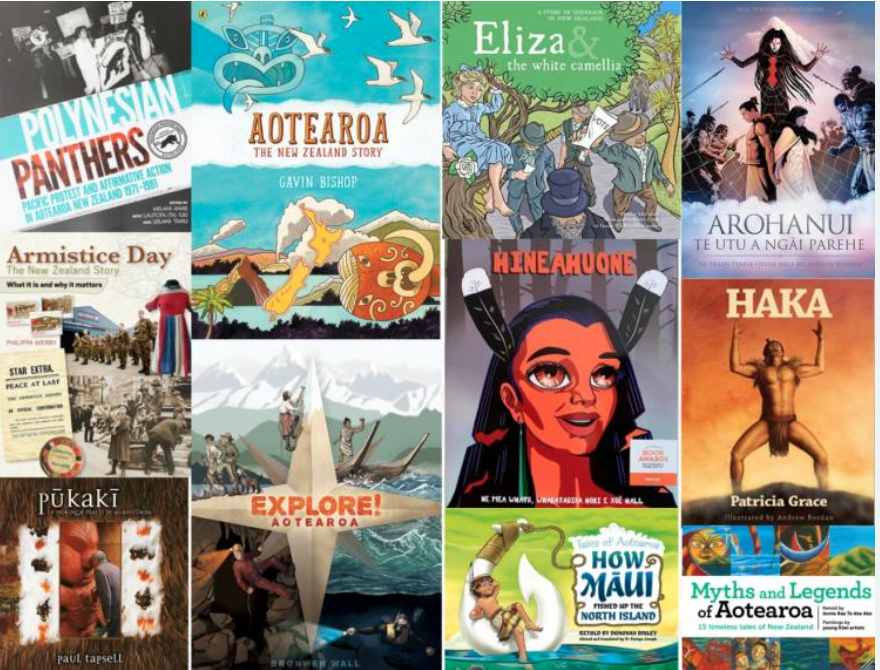
Weekly Quiz
Every week, we will be doing the Weekly Quiz.
Each week the quiz consists of twenty international and New Zealand questions that help us understand the news and the world around them. Questions cover politics, events, issues, discoveries, sport, entertainment, knowledge etc.
Be prepared and listen, watch or read the news throughout the week.
This week, we will be introducing ourselves through our introductions and kakahu.
You will create a kakahu (feather) to show who you are, where you come from, family, sports, pets, interests etc.
Our korowai will be displayed on the wall so make it colourful and full of yourself.
Fun facts about Māori Korowai
- The Korowai is a traditional woven Māori cloak.
- Māori Korowai are most commonly worn on special occasions, such as a significant hui.
- The Korowai hold stories of the history of whānau and whakapapa.
- The Korowai is worn as a mantle of prestige and honour.
- The name Korowai is symbolic of leadership, and includes the obligation to care for the people and the environment.
-
EXPLORE / TŪHURA learning intentions:
- We are EXPLORING what we know about treaties, including Te Tiriti o Waitangi.
- We are CONNECTING links between agreements as a class previously and some details about Te Tiriti or Waitangi Day.
- We are EXPLORING how “sovereignty” (the power to make laws for a country and being able to enforce those laws) is key to understanding Te Tiriti and its implications.
Before the Treaty

Pre Treaty Activities
- Find out what the students know about the history of Aotearoa New Zealand. Have them work in groups to come up with significant events in our history.
- Read through Comic SJSL_Te Tiriti 0 Waitangi-2ndEd.pdf
- Work towards a class timeline of events. You may like to structure this in the same way as the story (before Te Tiriti, after Te Tiriti).
- Explain that for hundreds of years, Aotearoa New Zealand was a solely Māori land.
- Work through Pre-Treaty Activities on GC.
- Watch the He Whenua Rangatira video from the National Library of New Zealand He Tohu exhibition to give us a sense of the early migrations of hapū and iwi around the country: .
- Discuss the importance of the natural resources that were traded here and overseas.
- Explain that in 1835, He Whakaputanga – the Declaration of Independence told the world that Aotearoa New Zealand was a Māori country and that rangatira were in charge.
- Watch this He Tohu video that shows the voyages of Te Tiriti to find out whether it came to your region: .
- complete sheet on the New Zealand History website: https://nzhistory.govt.nz/politics/treaty/making-the-treaty/treaty-of-waitangi-signing- locations. This website provides biographical information on each person who signed Te Tiriti. Encourage students with a personal connection to Te Tiriti to look for people from their hapū or iwi.
-
Enter text here...
EXPLORE / TŪHURA learning intentions:
- We are EXPLORING what we know about treaties, including Te Tiriti o Waitangi.
- We are CONNECTING links between agreements as a class previously and some details about Te Tiriti or Waitangi Day.
- We are EXPLORING how “sovereignty” (the power to make laws for a country and being able to enforce those laws) is key to understanding Te Tiriti and its implications.
- We are EXPLORING our country and making connections between the history of the arrival of colonists to Aotearoa
- We are EXPLORING and sharing our understanding of the significance of Waitangi Day and why it is celebrated in NZ.
- We are EXPLORING our new school, MHJC and getting to know each other.
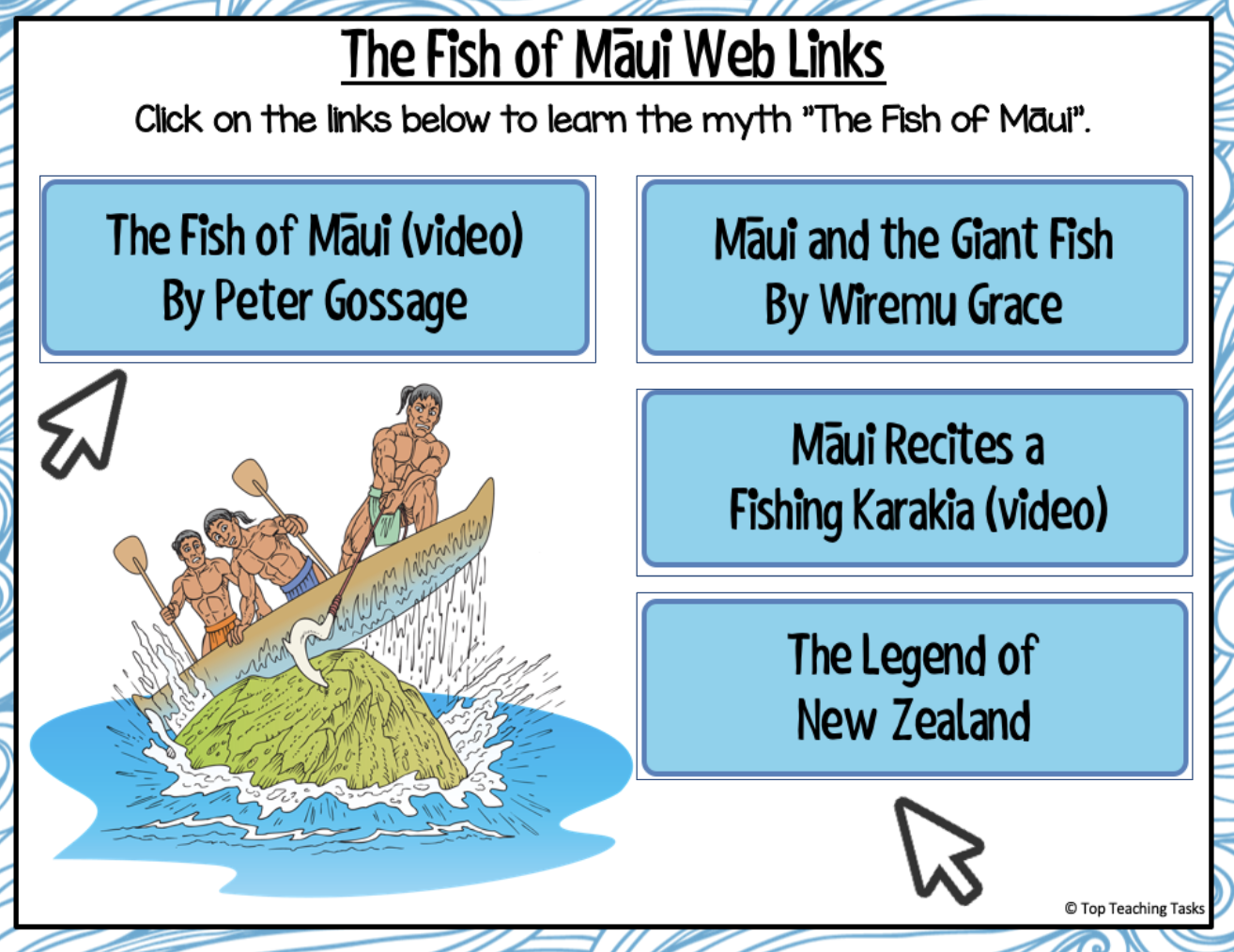
https://www.youtube.com/watch?v=Nb9Y99KQG1k&authuser=0
https://teara.govt.nz/en/video/6799/maui-chants-a-fishing-karakia?authuser=0https://www.newzealand.com/int/feature/the-legend-of-new-zealand/?authuser=0
https://docs.google.com/document/d/1gEk3L7LnisBqw2kKL-GFaVeWXOmqtQUMgnQeIHCZVWE/edit?usp=classroom_web&authuser=0
Complete activities in Google Classroom.
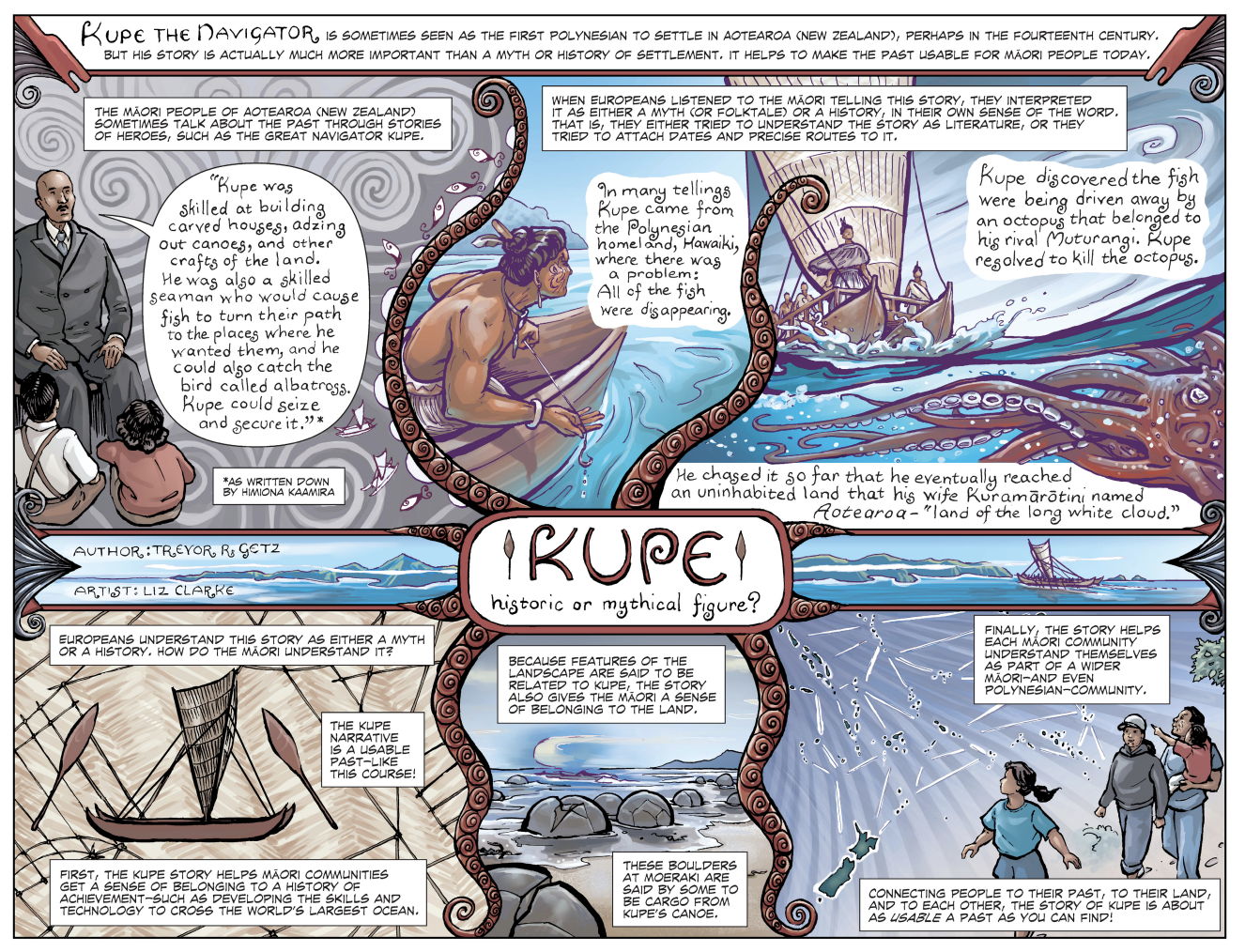
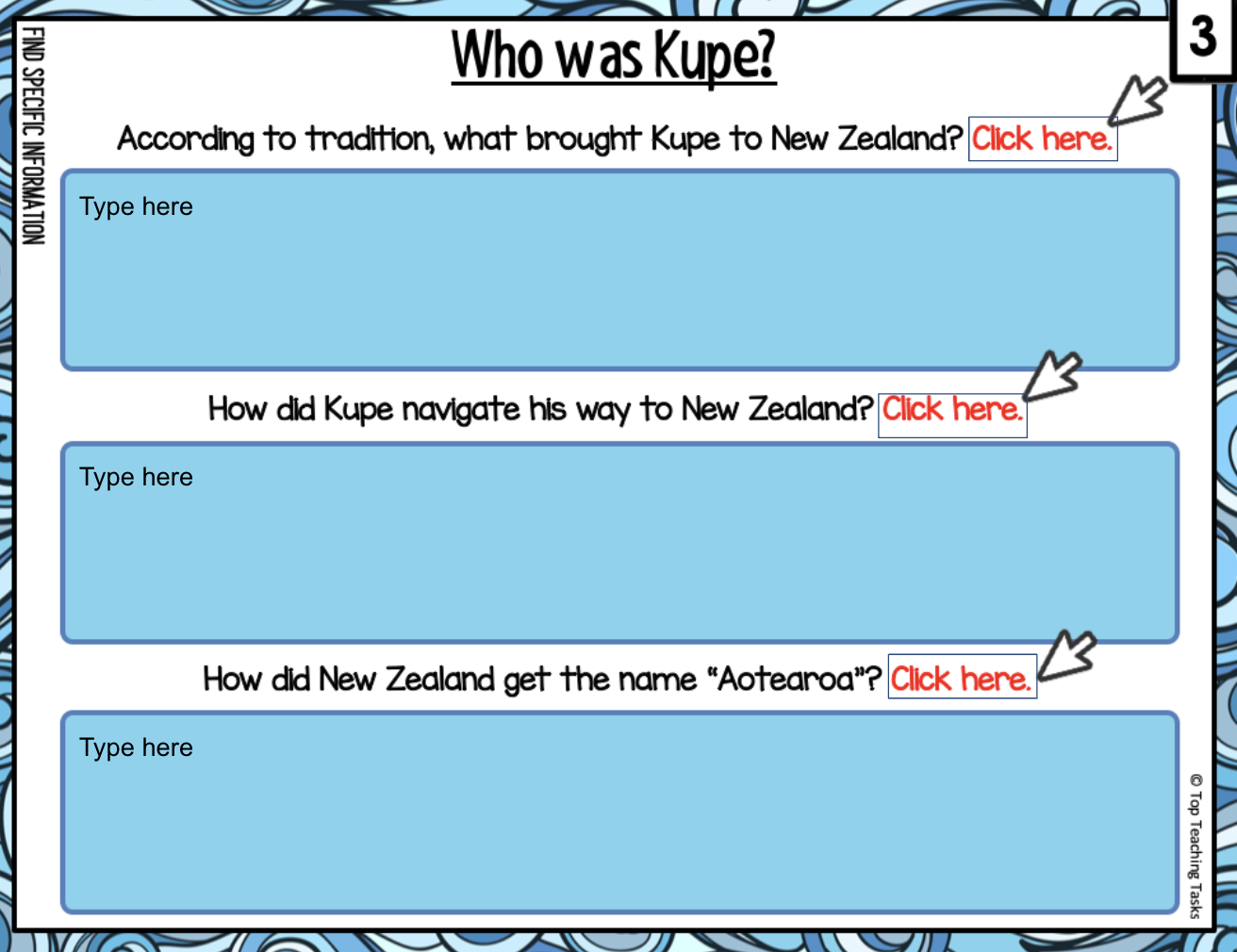
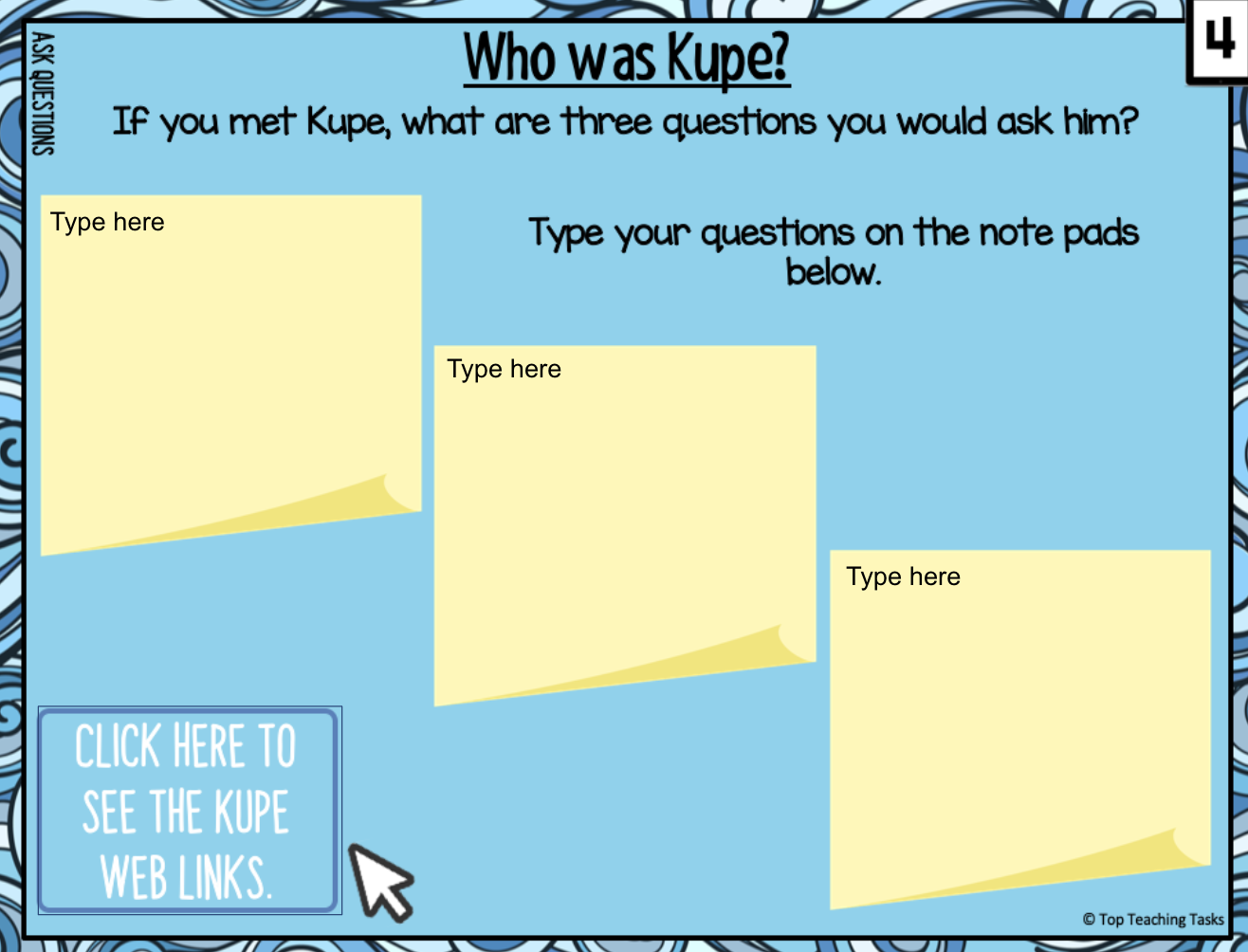
- First People’s in Maori Tradition – Kupe https://teara.govt.nz/en/first-peoples-in-maori-tradition/page-6
- Get on the Waka! The Spinoff (from 1:25)
- Kupe in the Hokianga
- Who was Kupe? Wikipedia information https://en.wikipedia.org/wiki/Kupe
- Kupe Sites: A Photographic Journey Te Papa Museum of New Zealand https://www.tepapa.govt.nz/discover-collections/read-watch-play/maori/kupe-sites-photographic-journey
-
Enter text here...
EXPLORE / TŪHURA learning intentions:
- We are EXPLORING our country and making connections between the history of the arrival of colonists to Aotearoa
- We are EXPLORING and sharing our understanding of the significance of Waitangi Day and why it is celebrated in NZ.
- We are EXPLORING our new school, MHJC and getting to know each other.
Read through the article and answer the questions on Google Classroom.
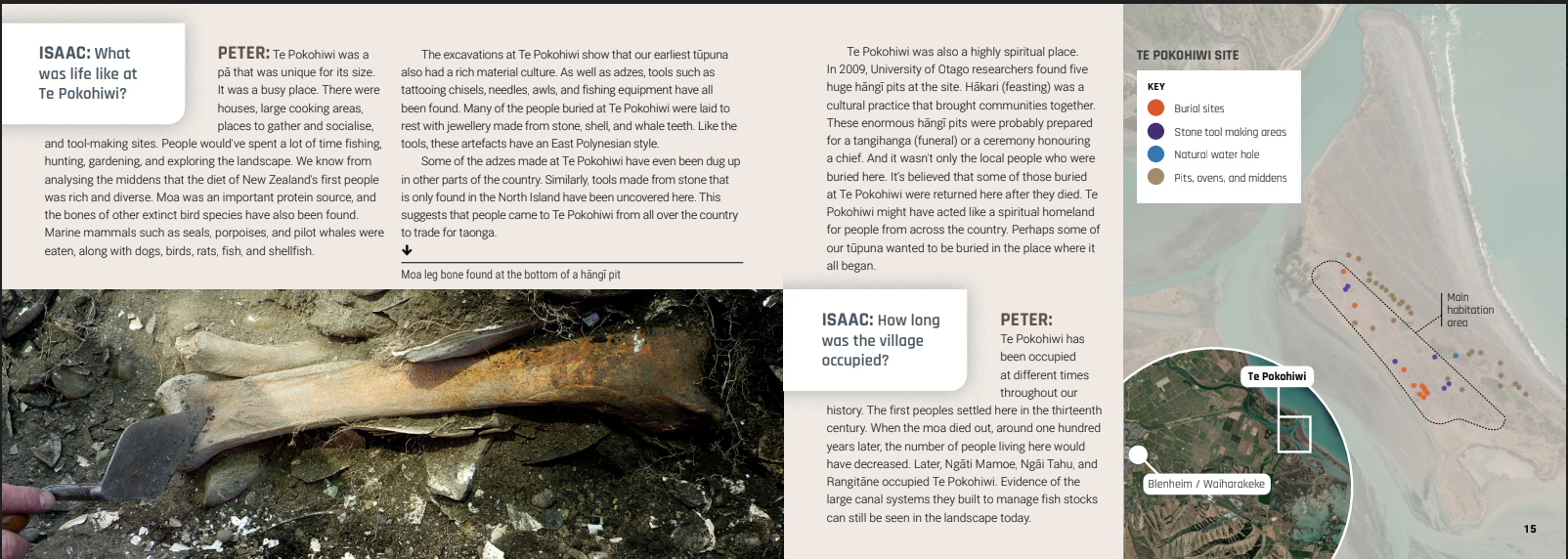
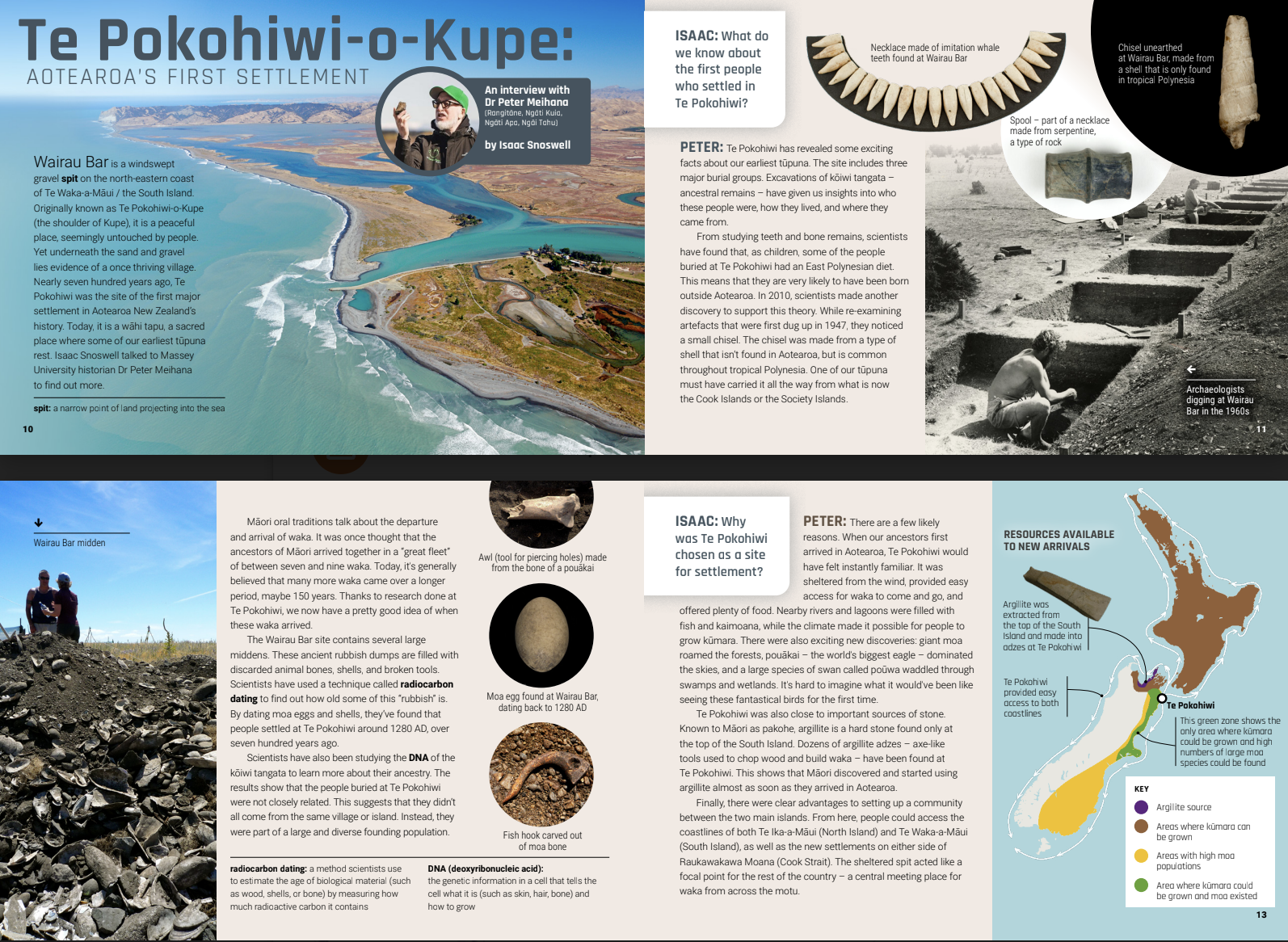
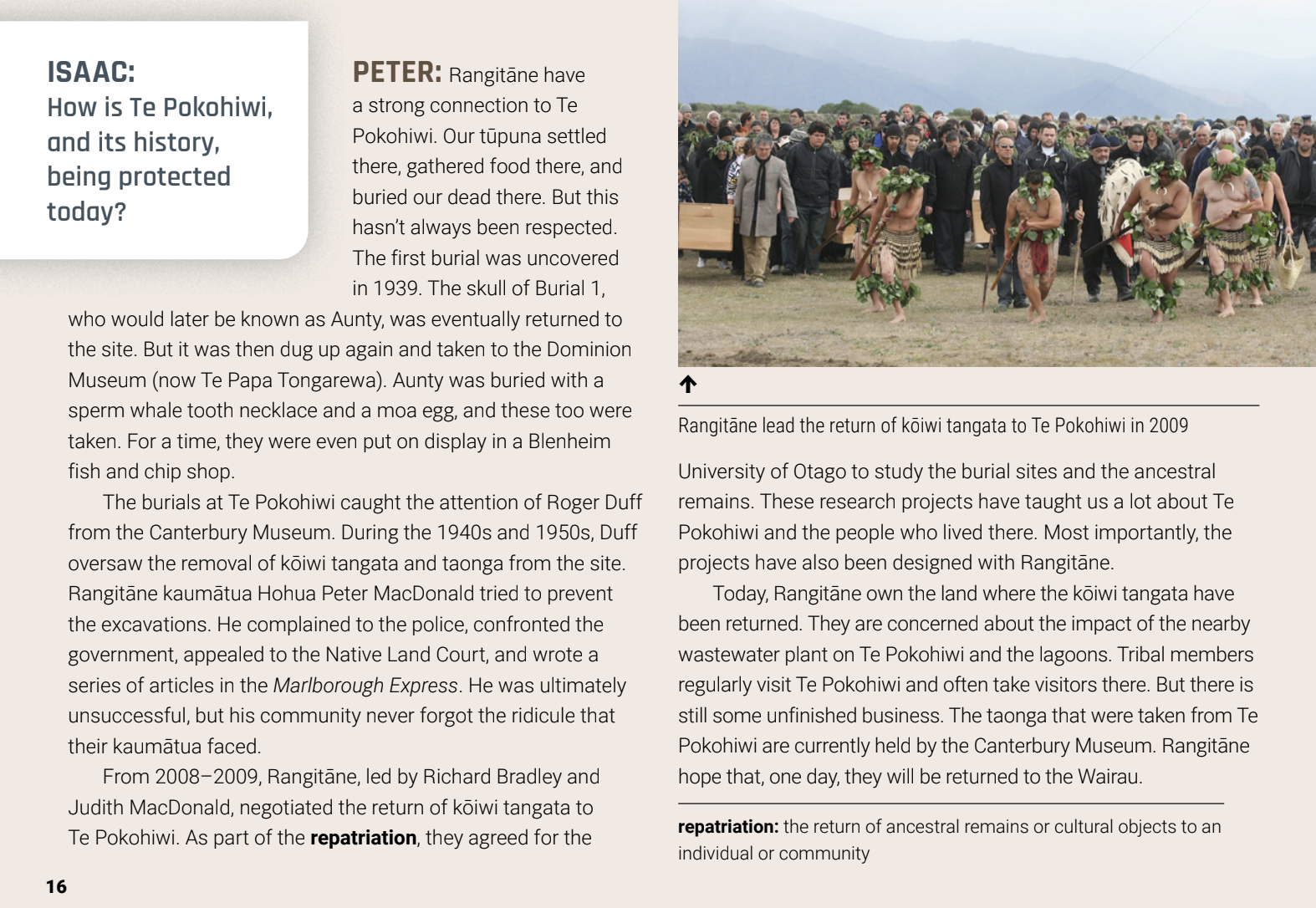
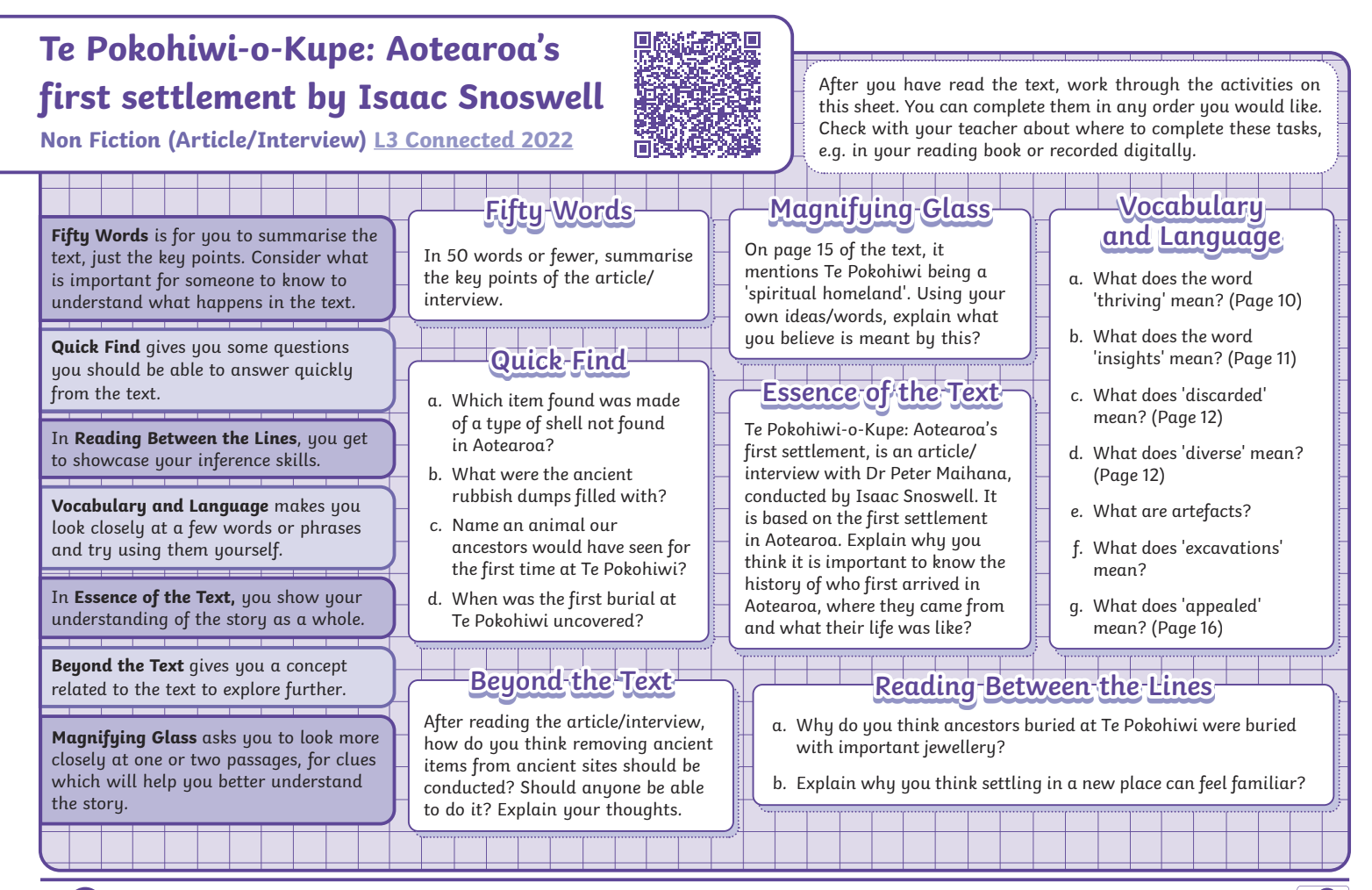
-
EXPLORE / TŪHURA learning intentions:
- We are EXPLORING what we know about treaties, including Te Tiriti o Waitangi.
- We are CONNECTING links between agreements as a class previously and some details about Te Tiriti or Waitangi Day.
- We are EXPLORING how “sovereignty” (the power to make laws for a country and being able to enforce those laws) is key to understanding Te Tiriti and its implications.
- We are EXPLORING our country and making connections between the history of the arrival of colonists to Aotearoa
Today we will be discussing Parihaka
Do you know anything about Parihaka?
1. Discussion and Powerpoint
2. Read through the Fact File
3. Complete the Fact Hunt Sheet in book.Information is on Google Classroom.
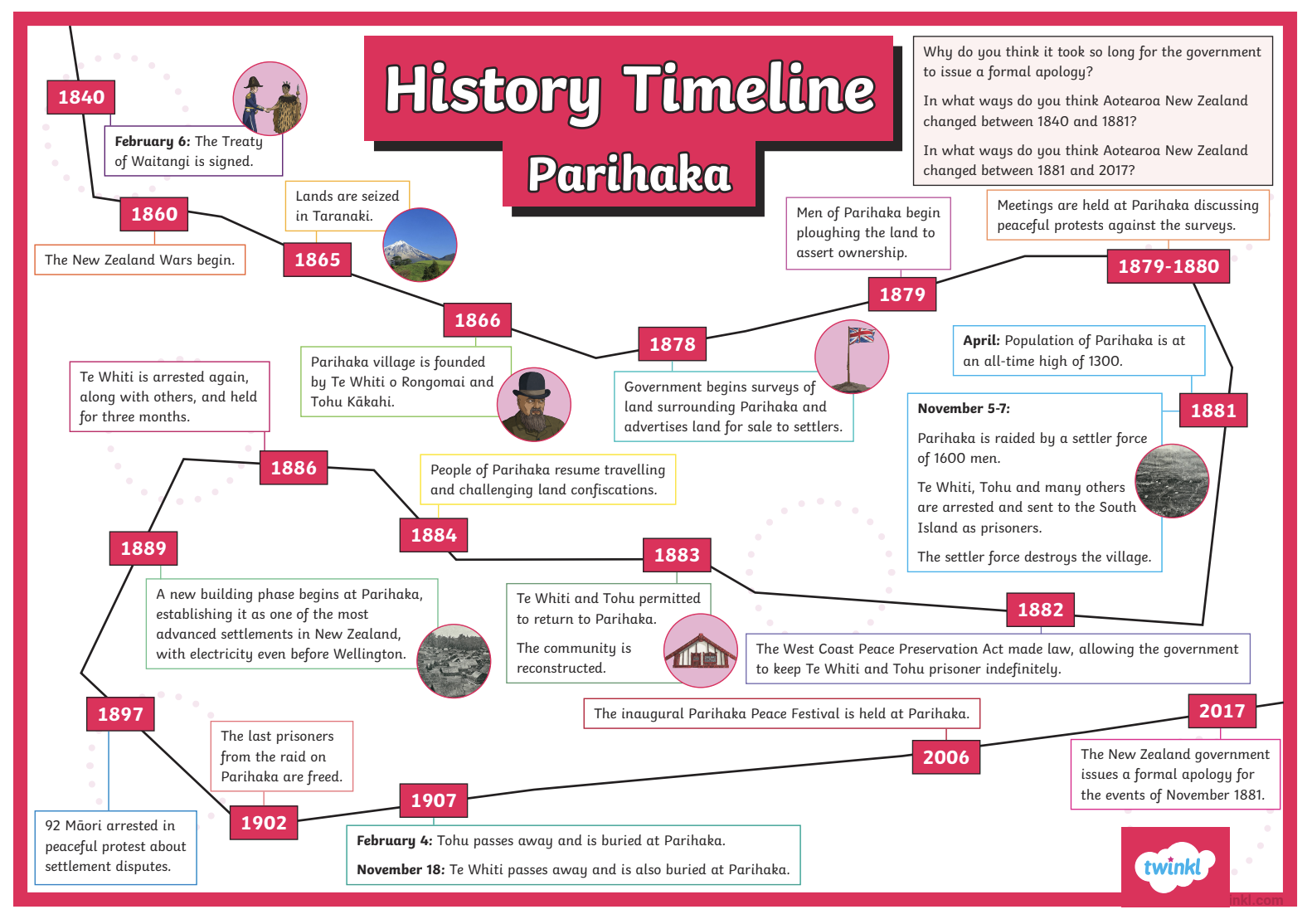
1. Weekly Quiz - add as PDF
Students to access Weekly Quiz on Google Classroom - no discussion or Google (should take around 15 minutes)
Complete quiz to be marked on Thursday.
2. Parihaka feather activity
Copies of feathers available in packet for all students.
Students read through information on Google Classroom
Complete the feather and decorate it to go onto the wall (colour pencils if needed by whiteboard)
3. Extra for Experts
EP Task - The Power of People.In this akoranga / lesson, we will be learning about:- the landscape of early Aotearoa;
- how Aotearoa’s taiao / environment was important to its early inhabitants;
- how this view of the land framed their interaction with it.
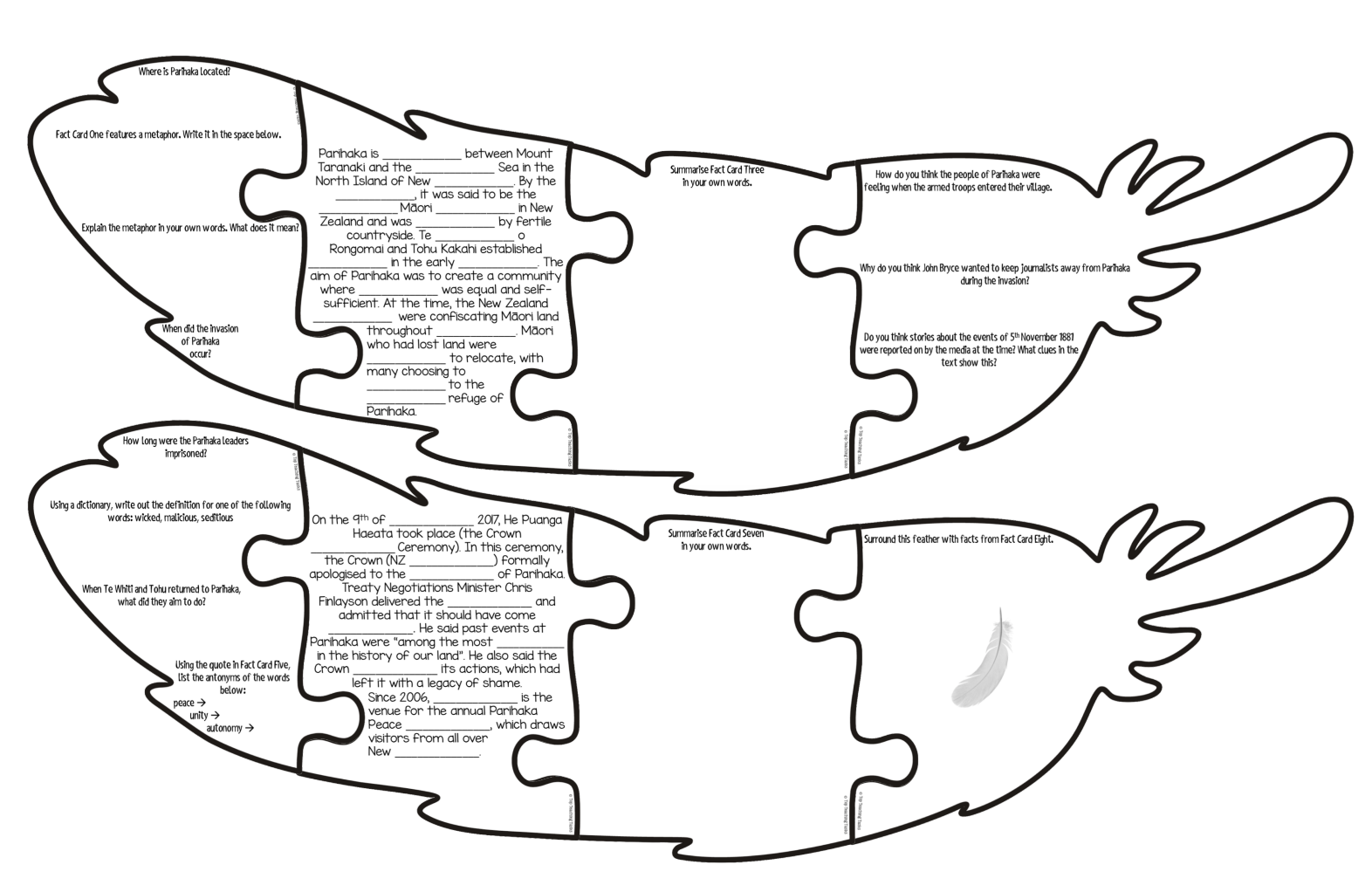
-
Enter text here...
FOCUS / ARONGA learning intentions:
- We are FOCUSING on the strong spiritual bonds Māori have with the land - Papatūānuku (the Earth mother).
- We are FOCUSING on the Māori world view of taonga/treasures (such as land, soil and water).
- We are FOCUSING on the Māori concept of kaitiakitanga (guardianship and conservation) of these taonga.
- We are FOCUSING on understanding kaitiakitanga as a source of unity and identity for tangata whenua.
Success Criteria
- We have been able to reflect on the impact of an experience for ourselves and on the impact of an experience for the group as a whole.
- We have been able to transfer skills and knowledge they have learnt in one context to another context
- We have identified key words or phrases to describe an activity, experience or concept and create a crossword using these.
- We have explored different ways of learning and what is comfortable for each person and develop caring thinking skills.
- We have been able to review and assess how they are going as they work through a project, activity or journey.
The Y Camp Adair is one of NZ's oldest and largest camps!
Established in 1913, The Y Camp Adair (formerly known as the YMCA) in Hunua has provided thousands of Kiwis the opportunity to develop themselves using the great outdoors. Overlooking the stunning Hunua Ranges Regional Park, YMCA Camp Adair covers 100 acres and includes four self-contained areas that can accommodate a total of 434 people.
At The Y Camp Adair, we love welcoming people from all walks of life. Examples of groups that have used our camp have included (but are not limited to); community groups, family groups, corporate team building, church retreats, sports teams and school camps from Auckland and beyond. If you are a group of people who need a venue, you will find everything you need for your outdoor adventure experience – accommodation, indoor facilities, catering and most importantly our amazing activities!
Everyone who visits our unique camp in Hunua gets the opportunity to enjoy the fresh air, open fields and the native bush of Auckland’s oldest regional park right on our doorstep.
As Year 7's at MHJC, we get to attend 3 days of camp. This week we are preloading with information about the camp and activities and preparing to experience some great events and have a great time.
-
FOCUS / ARONGA learning intentions:
- We are FOCUSING on the strong spiritual bonds Māori have with the land - Papatūānuku (the Earth mother).
- We are FOCUSING on the Māori world view of taonga/treasures (such as land, soil and water).
- We are FOCUSING on the Māori concept of kaitiakitanga (guardianship and conservation) of these taonga.
- We are FOCUSING on understanding kaitiakitanga as a source of unity and identity for tangata whenua.
Success Criteria
- We have been able to reflect on the impact of an experience for ourselves and on the impact of an experience for the group as a whole.
- We have been able to transfer skills and knowledge they have learnt in one context to another context
- We have identified key words or phrases to describe an activity, experience or concept and create a crossword using these.
- We have explored different ways of learning and what is comfortable for each person and develop caring thinking skills.
- We have been able to review and assess how they are going as they work through a project, activity or journey.
This week, we are preparing for camp, we will be setting a timetable, comparing and contrasting it to what has been planned for us. -
Enter text here...
PLAN & DO / WHAKAMAHI learning intentions:
- We are PLANNING for for our camp week at Cam Adair so that we can we can be prepared and have knowledge and understanding about Camp Adair, the area and activities.
Enter text here...
Founded in 1913.
Camp run by The Y.
Originally known as Camp Hunua, founded by George Adair, Director of YMCA, Auckland and later name changed to Camp AdairNew Zealand’s oldest and largest camp.
Select one of the 3 camps and research the camp.
Find out:
Where they are?
What they offer?
Costs of going to camp?
Other interesting ideas?
Stories of the pastThis 1938 newspaper article reports on the first-ever nationally authorised school camp, held for senior boys from Auckland's Epsom Normal School at a YMCA camp at Hūnua, south of Auckland. The Auckland Star reported that the boys 'did all the cooking and assisted the cook; they studied chiefly Nature, art, practical arithmetic, music, physical education, swimming and lifesaving, went on study rambles, produced plays, and ended each day with a singsong.' Their parents felt that such camps should become 'a permanent feature of normal school policy,' and the Education Department agreed.
Where you are staying
The Hugh Lambie (HL) village sleeps 96 people, made up of three cabins of 16, three of 12 and two of 6. Minimum occupation of 40 people. All cabins and dining hall have wheelchair access along with 1 toilet/shower.
ChallengeCreate a crossword or word find using the activities at Camp Adair.
The task is to use the information on the website to write the clues.
https://www.ymcanorth.org.nz/find-your-local/camp-adair-hunua/It must include at least 15 clues:
Climbing -
Air Rifles
Abseil -
Archery
Cargo Climb -
Bush Cooking
Crate Stack -
Confidence Course
Giant Ladder -
Fire Lighting
High Beam -
Orienteering
Flying Kiwi -
Catapults
Islands in the sky -
Kayaking
Pirates Crossing -
Raft Building
Two Wire Bridge -
Tramping
Leap of Faith -
Campfire
High Swing -
Mudslide
- Burma Trail -
- Glow Worm Walk
-
Enter text here...
REFLECT / WHAIWHAKAARO learning intentions:
- We are REFLECTING on our experiences at Camp Adair and preparing our assessment during classtime.
Enter text here...
Camp Week Assessment: A Global Studies Adventure!
Welcome back from camp, Year 7! This week was all about teamwork, challenge, and exploring who we are as New Zealanders. This assessment will reflect on your experiences at camp through the lenses of both Global Studies.
Global Studies - Kiwis on the Move!
Challenges & Teamwork: Describe a challenging activity you faced at camp. How did you use teamwork and communication skills to overcome it? (e.g., building a shelter, navigating an obstacle course)
Manaakitanga: Explain the concept of "Manaakitanga" and how you demonstrated it during camp. Give an example of how you looked after yourself and others.
Who are We? Think about the activities you did at camp. How did these activities connect to the land (whenua) and our place in Aotearoa New Zealand?
Imagine you are creating a brochure to promote camp to new Year 7 students. Using your experiences, highlight the Global Studies aspects above that make camp a valuable learning experience. Be creative!
Remember:
Use clear and concise language.
Give specific examples from your camp experience.
Reflect on your learning and growth.
This assessment is a chance for you to showcase the amazing things you learned and achieved at camp!
-
FOCUS / ARONGA learning intentions:
- We are FOCUSING who gets to make laws in Aotearoa New Zealand today and how they are enforced.
- We are FOCUSING making connections to the our lives, for example, what it means to be independent.
- We are FOCUSING on understanding kaitiakitanga as a source of unity and identity for tangata whenua.
We will be learning about ANZAC Daywhich will fall during the school holidays and the importance of ANZAC Day to NZer's today.
https://youtu.be/v2E_4LOw6xA?feature=sharedLearning Objectives:
- Students will understand the significance of Anzac Day in New Zealand.
- Students will be able to explain the historical event that Anzac Day commemorates.
- Students will identify symbols associated with Anzac Day and their meanings.
Lesson Outline:
Introduction:
- Brainstorming: What do we already know about Anzac Day. Write their ideas in your book..
- Introduction: Explain that Anzac Day is a significant national day in New Zealand and Australia. Briefly discuss the concept of war and remembrance.
Activity 1: The History of Anzac Day:
- Presentation: Show images of Gallipoli and explain the role of New Zealand and Australian soldiers in the First World War.
- Discussion: Review the answers on the worksheet together. Discuss the sacrifices made by soldiers and the impact of the war on New Zealand.
Activity 2: Symbols of Remembrance:
- Symbols: Show images of poppies, rosemary, and dawn services. Explain the meaning of each symbol:
- Poppy: Represents remembrance of those who died in war.
- Rosemary: Represents remembrance for all those who served, including those who returned home.
- Dawn Service: A traditional ceremony held at dawn on Anzac Day to remember the fallen.
- Creative Activity: Students can design their own poppy or write a short message of remembrance to be placed at a local war memorial (optional).
Conclusion:
- Reflection: Briefly discuss the importance of remembering Anzac Day and why it is a significant event for New Zealanders.
- Commemoration: Share a short excerpt from a poem or diary entry related to World War I to add a personal touch.
By learning about Anzac Day, students develop an understanding of New Zealand's history and the importance of remembrance.
-
Enter text here...
EXPLORE / TŪHURA learning intentions:
- We are EXPLORING what makes a New Zealander by recognising our own identity, culture/s and values
- We are EXPLORING what makes a New Zealander by investigating popular parts of Kiwi culture and how it has changed over time
- We are EXPLORING what makes a New Zealander by researching my family history and cultural heritage
Enter text here...
all Year 7 students walked down to the 𝐅𝐨 𝐆𝐮𝐚𝐧𝐠 𝐒𝐡𝐚𝐧 𝐁𝐮𝐝𝐝𝐡𝐢𝐬𝐭 𝐓𝐞𝐦𝐩𝐥𝐞. This annual visit for all MHJC Year 7 students is part of the 3G/4G Festival of Cultural Sharing. It enabled students and staff to continue to forge connections with our greater Flat Bush community.
What a great event.
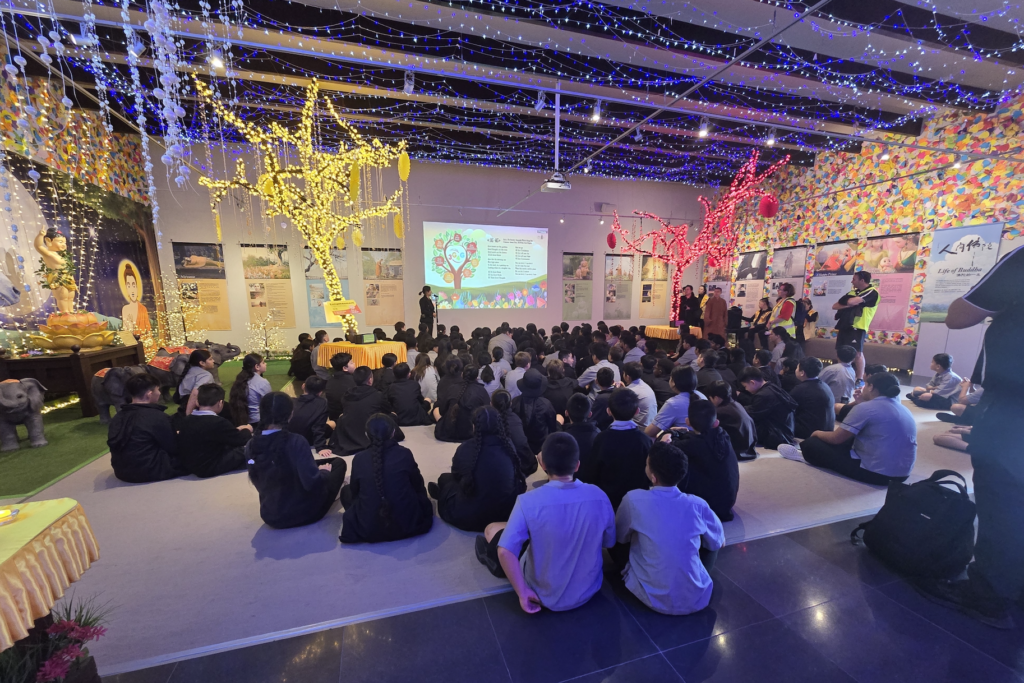
When we returned, we wrote about something we learnt and something we enjoyed the most. There were many examples such as calligraphy, meditation, dancing and singing.
This month is NZ Music Month.
We are learning about different NZ artists and music from our country. This week, we looked at creating a class playlist of our favourite NZ artists and songs.
Six60 is currently on top with Stan Walker in a close second place.
.
.
-
Enter text here...
EXPLORE / TŪHURA learning intentions:
- We are EXPLORING what makes a New Zealander by recognising our own identity, culture/s and values
- We are EXPLORING what makes a New Zealander by investigating popular parts of Kiwi culture and how it has changed over time
- We are EXPLORING what makes a New Zealander by researching my family history and cultural heritage
Enter text here...
Events that shaped us – role play and writing activity
Aim: To create a role play based on an important New Zealand event which teaches the rest of the class about how a New Zealand event shaped the Kiwi identity.
The class will divided into six groups randomly and you will each be assigned an event from New Zealand’s past which shaped Kiwi identity.
The events are as follows:
Your tasks are as follows:
Lesson one: Research your story behind the event you have been assigned. Use the table below to record your ideas
Lesson two: Prepare your role play to present to the class. This should include three acts:
The storyline of what happened
A representation of how Kiwi identity has been shaped by this event
Lesson three: Perform your play to the rest of the class
Research planning sheet
What are the key events and actions that take place?
Who are the key characters that will be portrayed?
How has New Zealand’s identity been shaped by these actions/events?
-
Enter text here...
EXPLORE / TŪHURA learning intentions:
- We are EXPLORING what makes a New Zealander by recognising our own identity, culture/s and values
- We are EXPLORING what makes a New Zealander by investigating popular parts of Kiwi culture and how it has changed over time
- We are EXPLORING what makes a New Zealander by researching my family history and cultural heritage
Enter text here...
Session 1 - Weekly Quiz
Working through Kiwiana activities
.
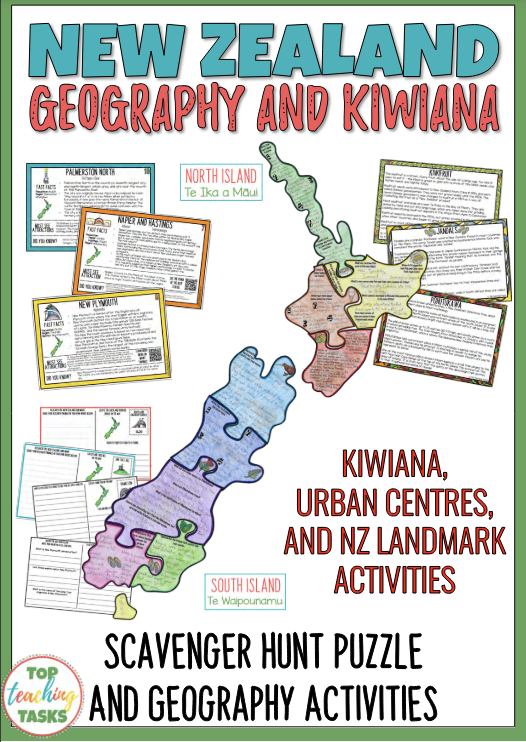
Kiwi Tucker
A Kiwi meal/Ode to Kiwi tucker
Class task: students to create a menu or write poetry about NZ food.
-
Enter text here...
EXPLORE / TŪHURA learning intentions:
- We are EXPLORING what makes a New Zealander by recognising our own identity, culture/s and values
- We are EXPLORING what makes a New Zealander by investigating popular parts of Kiwi culture and how it has changed over time
- We are EXPLORING what makes a New Zealander by researching my family history and cultural heritage
Enter text here...
Where are we at?
Plan for this week is
Session 1
- Weekly Quiz
- Kiwiana Map puzzle
Session 2
- Population Graph
- What makes you are Kiwi?
Session 3
- Immortalised on a Fiver
- Who, What, Where, Why, When
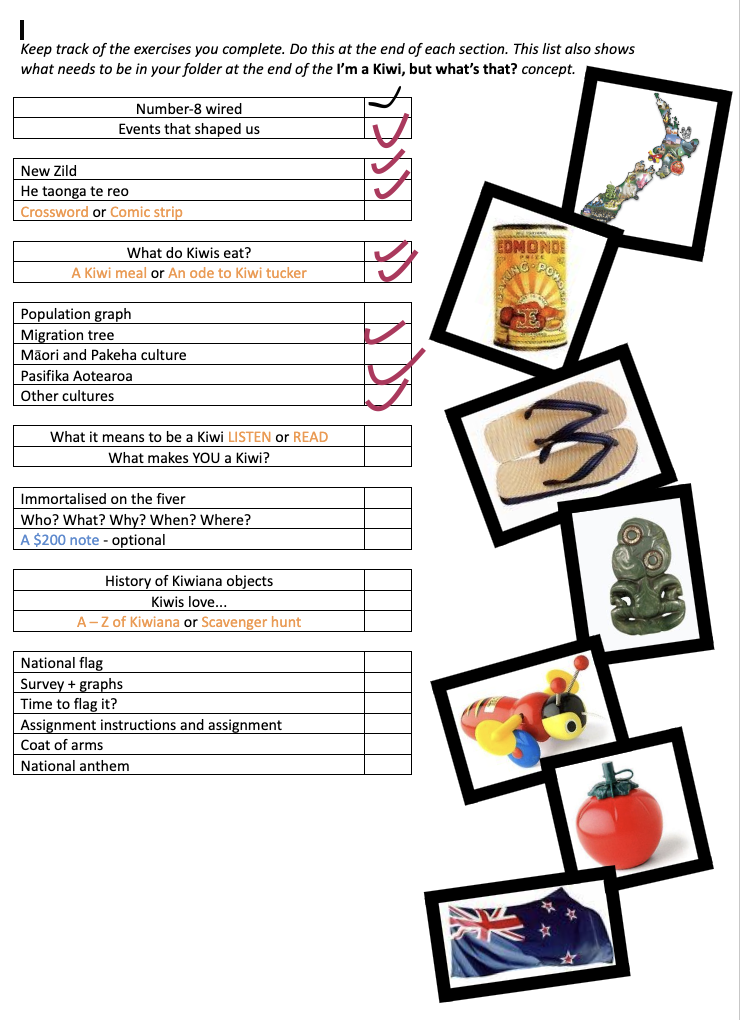
-
Enter text here...
EXPLORE / TŪHURA learning intentions:
- We are EXPLORING the social, political, and economic context of New Zealand in the late 19th century.
- We are EXPLORING the impact of women's suffrage on New Zealand society and subsequent changes in women's roles and rights.
We are learning:
- Understanding how people respond individually and collectively to community challenges.
- Understanding how people define and seek human rights.
- Recognising and understanding connections between oral, written and visual language.
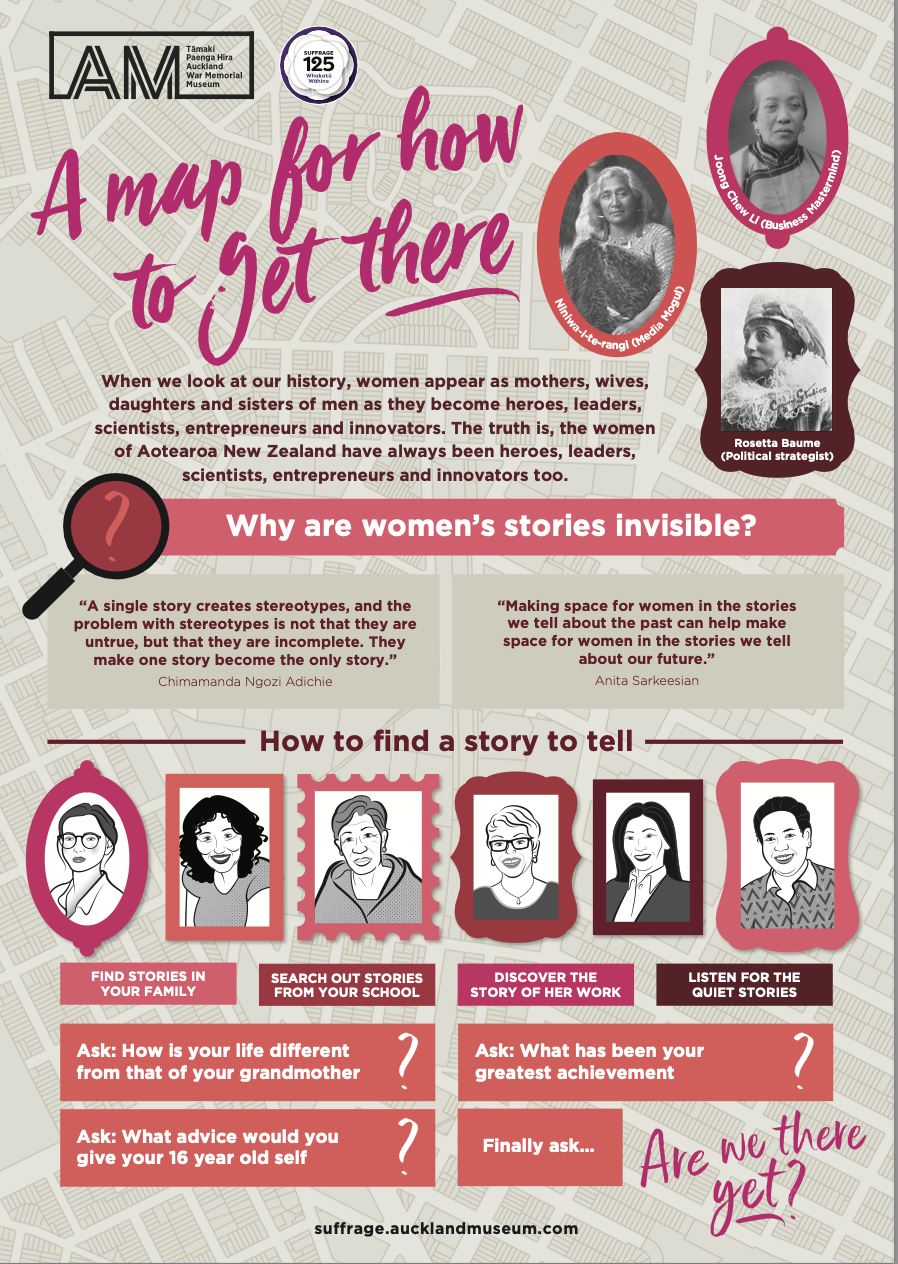
Stereotypes
Stereotypes are simplified and often exaggerated beliefs or ideas about a particular group of people. These beliefs are based on assumptions rather than on individual characteristics or experiences.
For example, a stereotype might suggest that all teenagers are lazy or that all scientists wear glasses and lab coat.
Without any context whatsoever, Students will receive a ‘Draw A...’ card. Complete the task on the card - draw both the role and the ‘doing’.
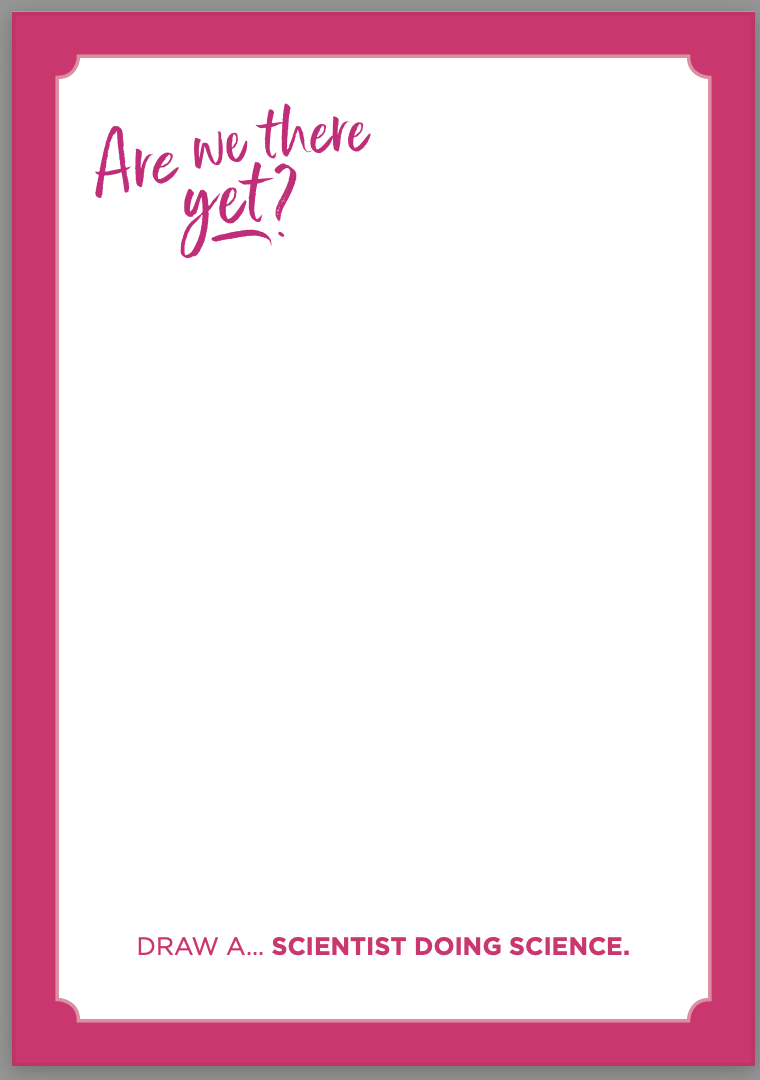
Understand the Draw a Scientist project and what it has uncovered about gender stereotyping.
Look at all the cards together.
Ask: Do you think younger or older kids would create different drawings? Why?
Do any of the results give us messages about gender? Are girls presented the same as boys?
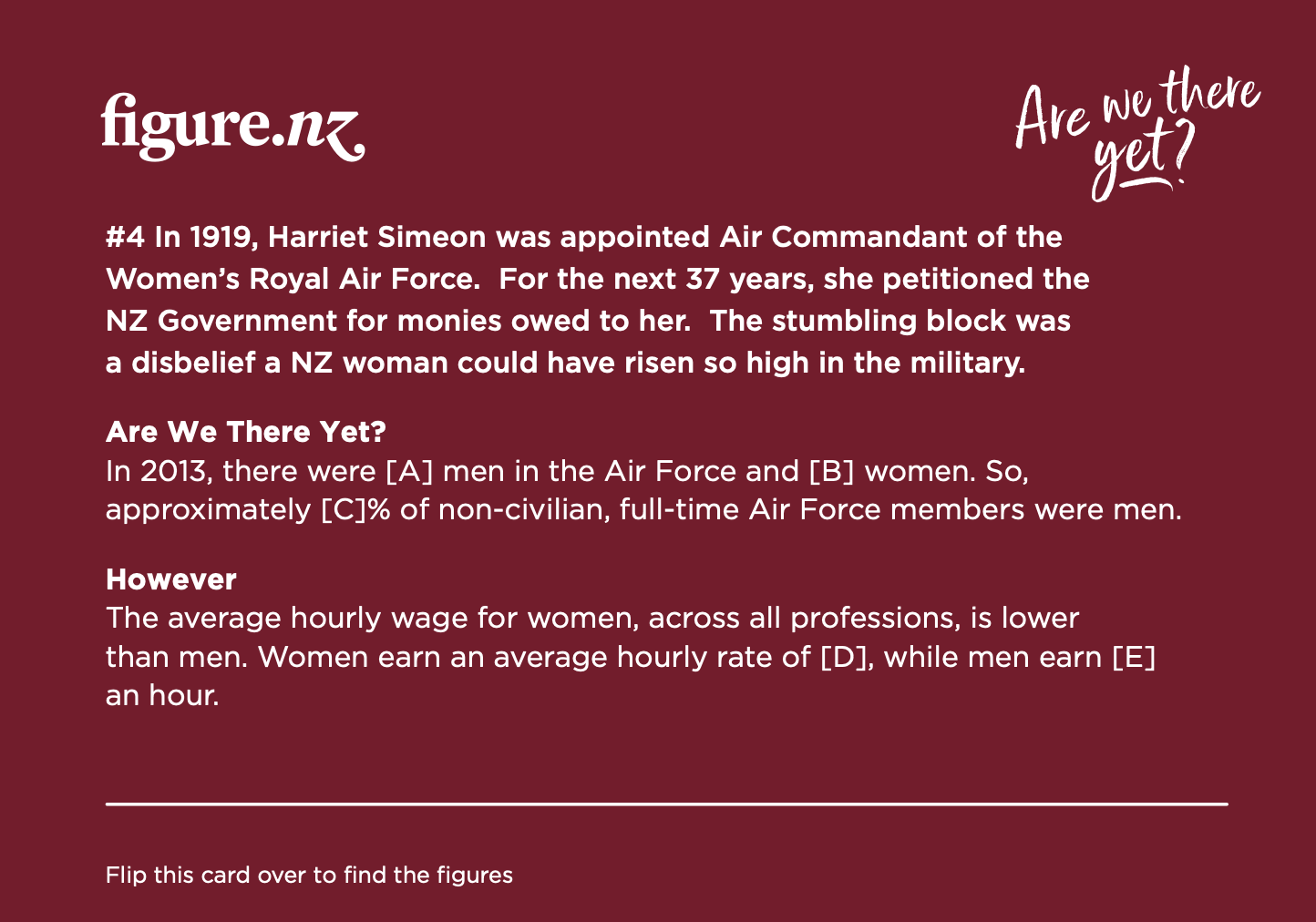
Search online for portraits of invisible women.
Write poems in the style of Alice Canton’s - She is, She might have, She probably...
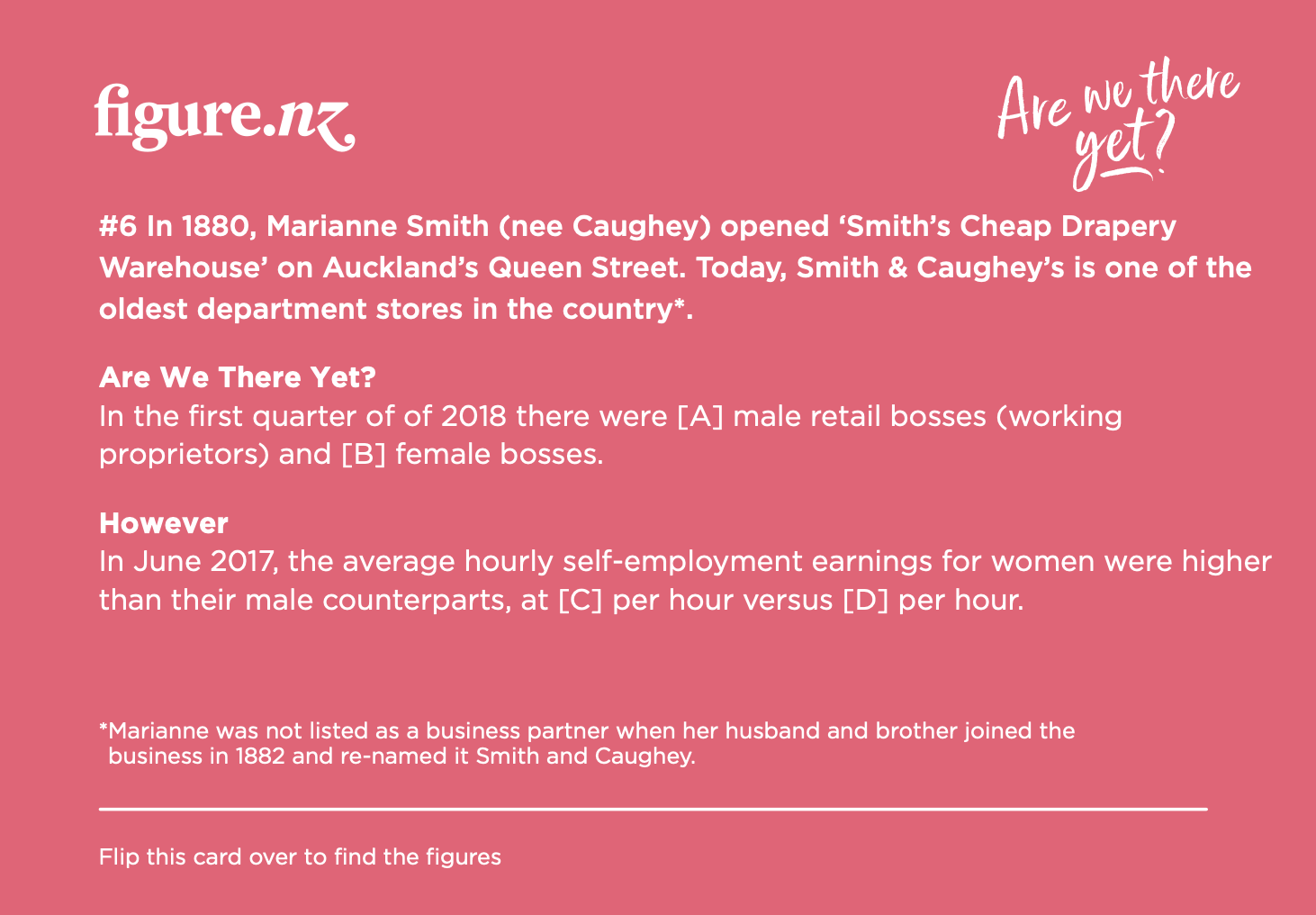
Understand that New Zealand has a proud history of women’s suffrage.
Research the invisible story of each woman profiled on the data sentence cards.
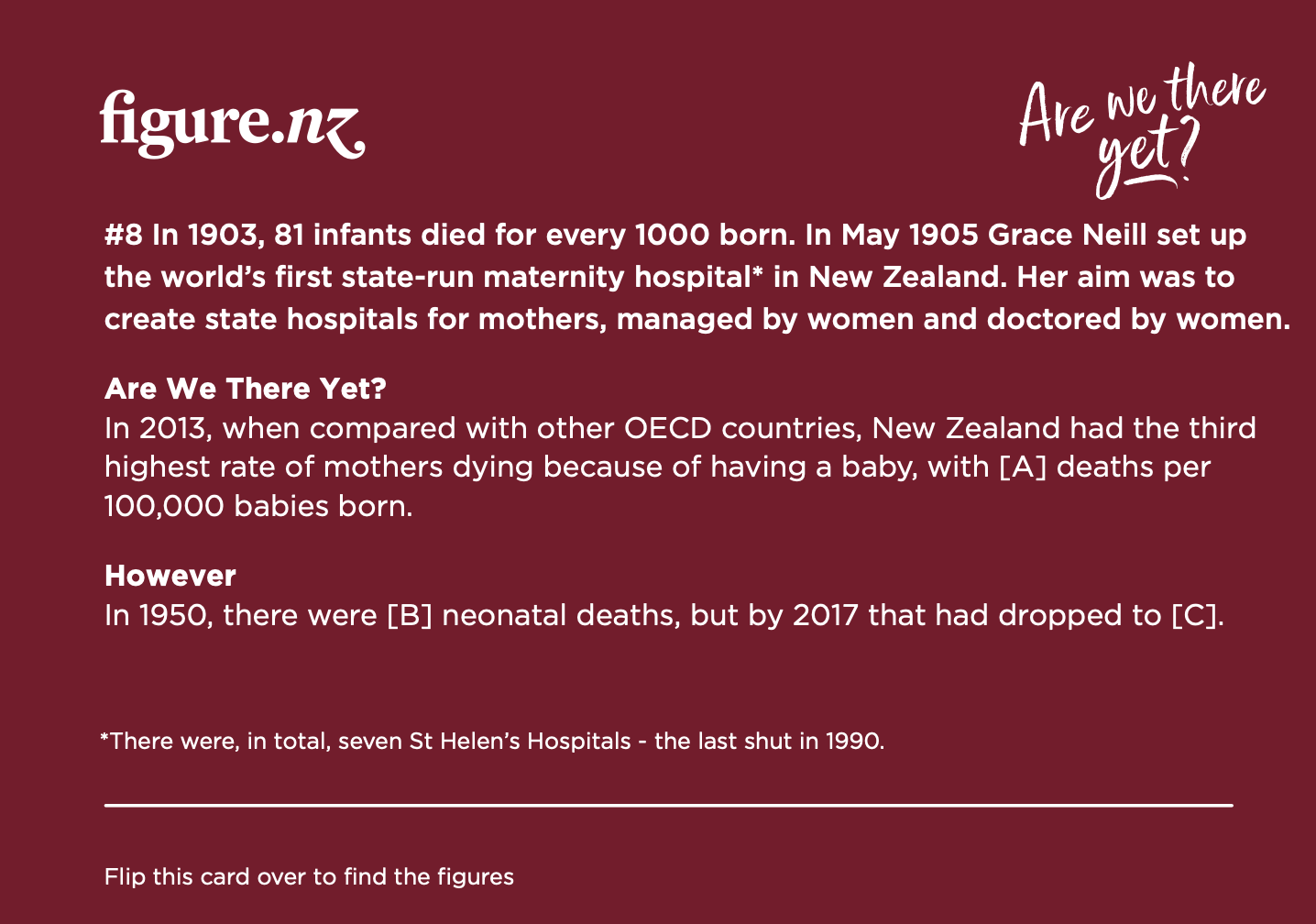
-
Enter text here...
EXPLORE / TŪHURA learning intentions:
- We are EXPLORING the social, political, and economic context of New Zealand in the late 19th century.
- We are EXPLORING the impact of women's suffrage on New Zealand society and subsequent changes in women's roles and rights.
Women's Right to Vote
We are learning to:
Think about democracy and the democratic right to vote
Complete sentences about the history of suffrage and the franchise in New Zealand
Research history of the franchise in New Zealand
DemocracyEveryone has a say in the way the country is governed and who it’s leaders are.
In Aotearoa / New Zealand, all citizens and permanent residents over the age of 18 have the right to vote in elections.
These votes decide who will lead or govern Aotearoa for the next parliamentary term of three years.
Suffrage
The right to vote is an awesome privilege and a serious responsibility but nowadays it is something we often take for granted.
This is called suffrage or franchise.
Originally, not every citizen of New Zealand had the right to vote - it was only following a long and difficult struggle that everyone achieved this right and became enfranchised.
Interative TimelineCheck out the NZ Parliament Interactive Timeline and make note of some dates you think are important in changing our world.
Go to the link on Google Classroom.
Write down at least 5 events about the voting process in your book.
In Google Classroom, you have a reading exercise set for you.
Read the story.
Make note of any words you don’t know in your book.
Define those words.
Answer multi-choice and short answer questions.
Complete long answer questions.
Fill in the Blanks
Between 1840 and 1854 a governor representing Queen _______ of ____________, ruler of the United Kingdom, ruled New Zealand. Settlers in New Zealand wanted to be able to elect their own representatives, so the British Parliament passed the New Zealand ________ Act in 1852, which meant New Zealand could form its own government,
New Zealand’s first elections were held in the year________.
Only ______ over the age of ______ were enfranchised.
To be entitled to vote, the person must have ________ property, or must have been renting property.
This meant that most Pākehā men were eligible to vote but few __________ men could vote.
Parliament started off being based in Auckland, but in 1865 it was moved to __________, as this town was more centrally located.
In the year ____, Māori men gained the right to vote in four Māori seats.
In 1879, the decision was taken to do away with the requirement to rent or own _________ in order to have the franchise. This meant that all men in New Zealand had the right to _________.
-
Enter text here...
EXPLORE / TŪHURA learning intentions:
- We are EXPLORING the social, political, and economic context of New Zealand in the late 19th century.
- We are EXPLORING the impact of women's suffrage on New Zealand society and subsequent changes in women's roles and rights.
We are learning to:
Think about the meaning of terms relating to the history of universal suffrage and match the terms to their definitions.
Research about the early fight to obtain the vote to empower women to vote and the early leaders of the suffrage movement.
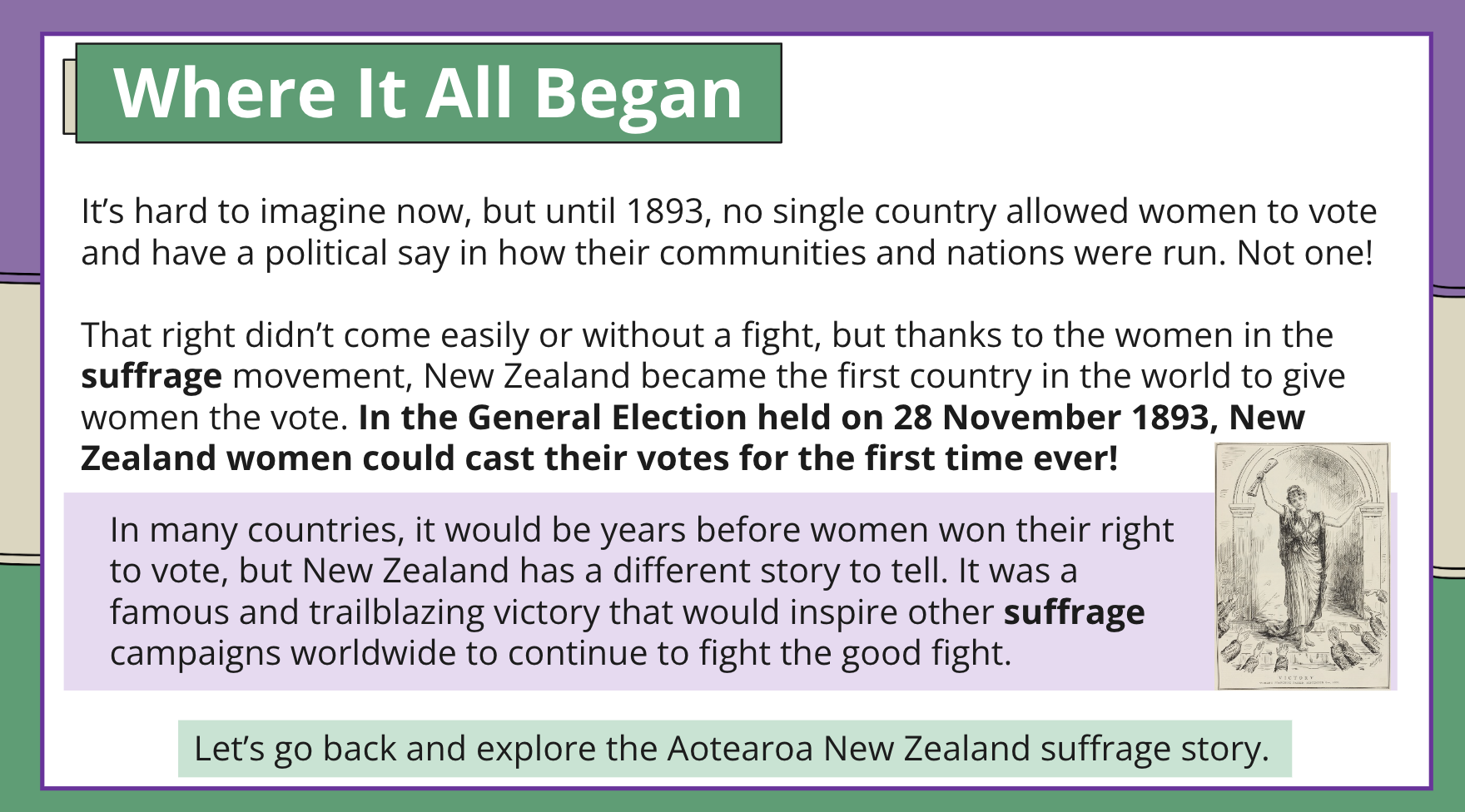

The Early Suffrage Movement in New Zealand
Complete the research document in Google Classroom.
Choose one of the key leaders involved in the New Zealand Suffrage Movement. Do research to find out some additional information about this person and his/her involvement with the women’s suffrage movement.
Display your findings on a CANVA presentation. Include pictures and other items of interest.
Your research must include:
Name, date of birth and death, leadership role in the suffrage campaign and how he/she obtained this role, main contributions to the fight to obtain the franchise for women, personal qualities, consequences from being involved in the suffrage movement PLUS anything interesting facts.
Answer the following questions in your books.
Give 5 reasons women might have felt they wanted the vote.
Why do you think some people might have been against women having the vote?
Do you think everyone should have the right to vote? Give reasons for your answer.
What were some of the methods that people used to get their message across to the government in the campaign for universal suffrage?
-
Enter text here...
EXPLORE / TŪHURA learning intentions:
- We are EXPLORING the social, political, and economic context of New Zealand in the late 19th century.
- We are EXPLORING the impact of women's suffrage on New Zealand society and subsequent changes in women's roles and rights.
We are learning to:
Define human rights and explain why they are important.
Understand the significance of the fight for women’s suffrage in the context of human rights.
Understand whose responsibility it is to ensure everyone’s rights are protected.
In Google Classroom, you have a reading comprehension task set for you.
Read the article.
Make note of any words you don’t know in your book.
Define those words.
Complete the worksheet given to you
Complete the short answer questions.
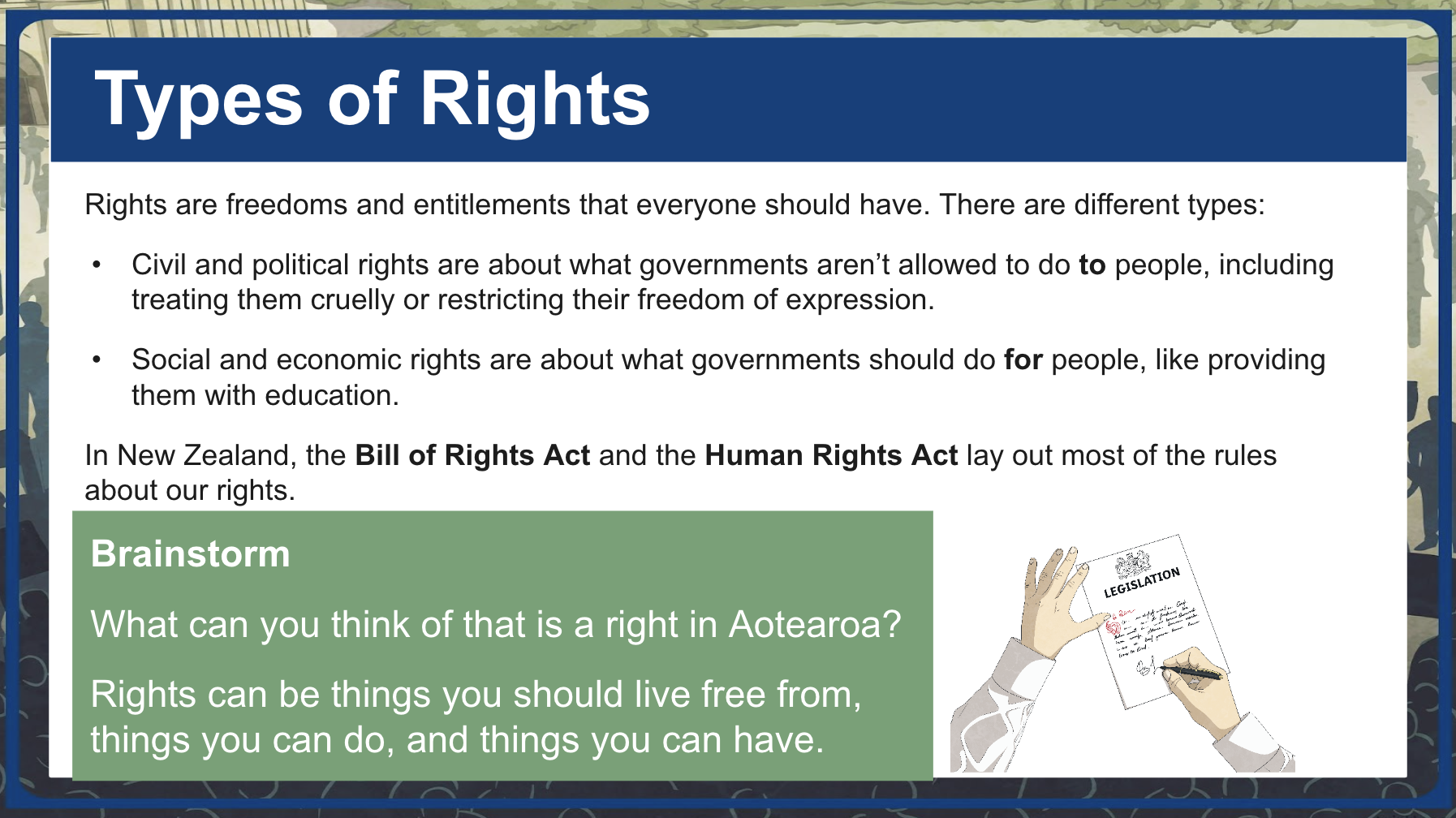
Do research and answer the following questions into your books.
What is the human rights commission?
Why was it created?
What is its role in New Zealand?
Does every person in New Zealand have the same rights and freedom that we enjoy in New Zealand? Why or why not?
Share back to the class.
In Google Classroom complete the - How Times Have Changed research - task.
Complete the table of 5 women who hold powerful jobs in New Zealand.
Answer the long answer questions on the Google Doc.
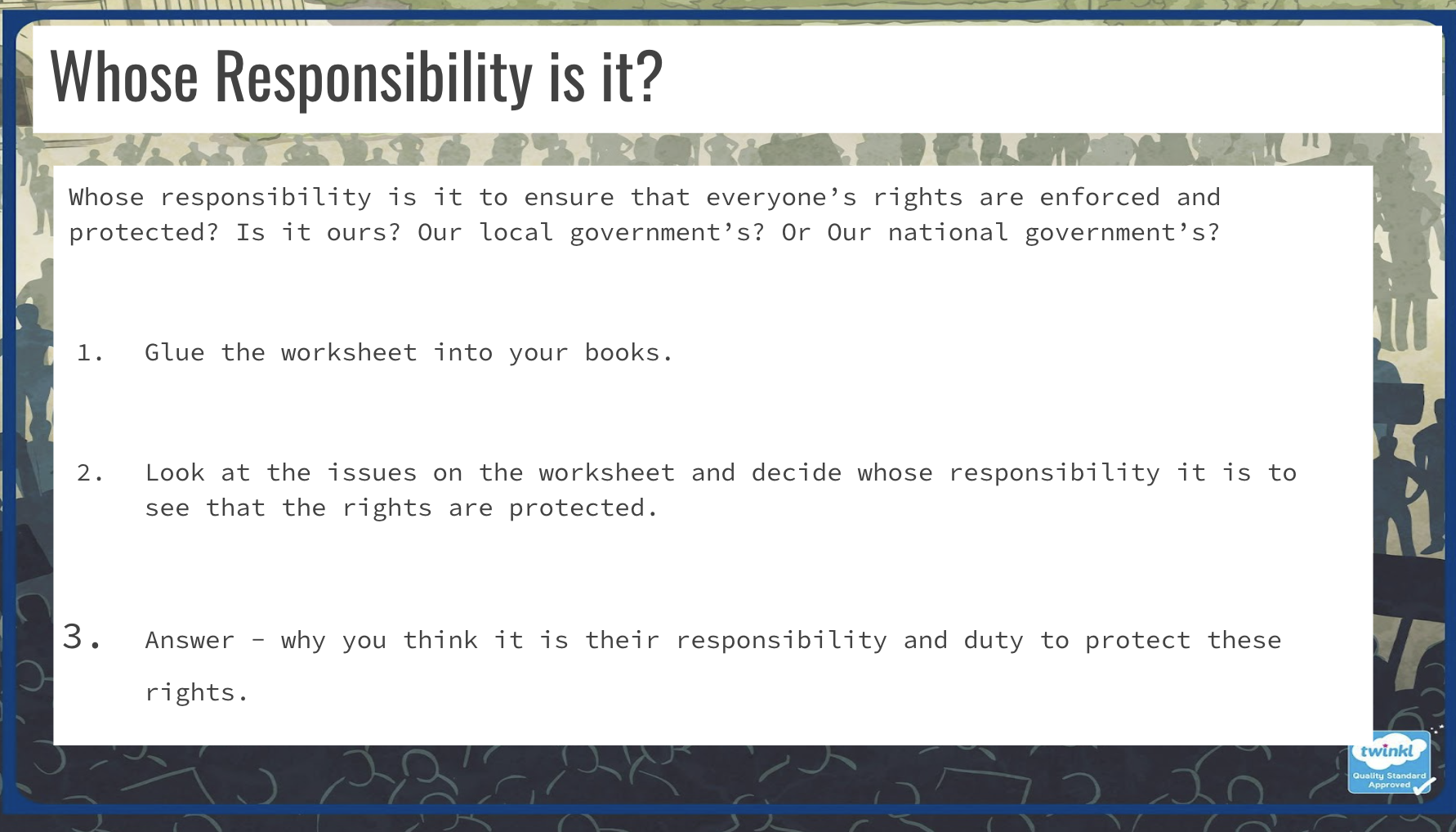
-
EXPLORE / TŪHURA learning intentions:
- We are EXPLORING Matariki and it's importance to New Zealand today
- We are RECOGNISING how Matariki encourages our understanding of the solar system and stars
Matariki Meal Celebration Unit
Learning Objectives
- Students will explain the significance of Matariki in Māori culture.
- Students will identify some of the traditions associated with Matariki celebrations.
- Students will research and identify ingredients for a traditional Matariki kai.
- Students will participate in preparing a plan for a Matariki meal.
Lesson 1: Introduction to Matariki
- Brainstorm what students know about New Year celebrations.
- Introduce the concept of Matariki, the Māori New Year.
- Discuss the significance of Matariki as a time to reflect on the past year and look forward to the future.
- Show pictures and illustrations of Matariki traditions (e.g., stargazing, gathering food).
Lesson 2: Matariki Traditions
- Divide students into groups and assign each group a different Matariki tradition to research (e.g., storytelling, games, food).
- Students research their assigned tradition and create a poster to share with the class.
- Class posters will allow students to learn about various aspects of Matariki celebrations.
Lesson 3: Matariki Kai
- Introduce the concept of kai (food) in Māori culture.
- Discuss the importance of sharing food during celebrations.
- Explore traditional Matariki kai dishes (e.g., hangi bread, steamed pudding).
- Show pictures of Matariki kai and discuss the ingredients used.
Lesson 4: Planning the Matariki Meal
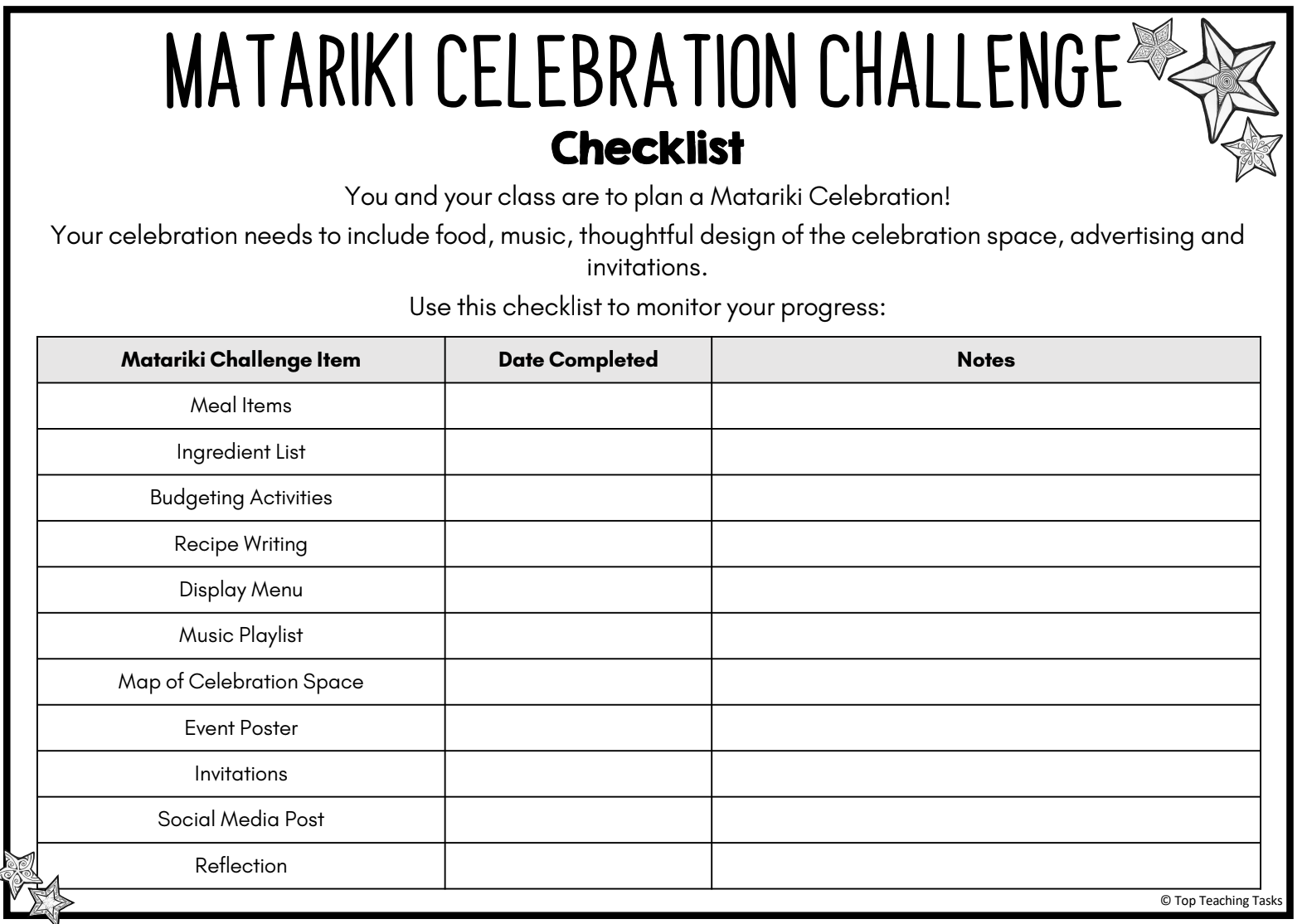
-
EXPLORE / TŪHURA learning intentions:
- We are EXPLORING Matariki and it's importance to New Zealand today
- We are RECOGNISING how Matariki encourages our understanding of the solar system and stars
Matariki Meal Celebration Unit
Learning Objectives
- Students will explain the significance of Matariki in Māori culture.
- Students will identify some of the traditions associated with Matariki celebrations.
- Students will research and identify ingredients for a traditional Matariki kai.
- Students will participate in preparing a plan for a Matariki meal.
Lesson 1: Introduction to Matariki
- Brainstorm what students know about New Year celebrations.
- Introduce the concept of Matariki, the Māori New Year.
- Discuss the significance of Matariki as a time to reflect on the past year and look forward to the future.
- Show pictures and illustrations of Matariki traditions (e.g., stargazing, gathering food).
Lesson 2: Matariki Traditions
- Divide students into groups and assign each group a different Matariki tradition to research (e.g., storytelling, games, food).
- Students research their assigned tradition and create a poster to share with the class.
- Class posters will allow students to learn about various aspects of Matariki celebrations.
Lesson 3: Matariki Kai
- Introduce the concept of kai (food) in Māori culture.
- Discuss the importance of sharing food during celebrations.
- Explore traditional Matariki kai dishes (e.g., hangi bread, steamed pudding).
- Show pictures of Matariki kai and discuss the ingredients used.
Lesson 4: Planning the Matariki Meal

-
Kotahitanga and The Olympics
The Olympics Brings Us Together as a Nation
Ngā mahinga ohaoha | Economic activity
This context focuses on how people seek to meet their needs and wants and the constraints some face in doing so; how people make a living individually and collectively and the exchanges and interconnections that result from this; and people’s rights and responsibilities as producers, workers, and consumers. It considers different ways in which economies allocate scarce resources and the resulting national and global consequences for equity and for people’s wellbeing.
KNOW: Within Aotearoa New Zealand’s histories, iwi and hapū experimented with new economic opportunities to enhance their mana. In doing so, they built extensive trading networks domestically and with Australia.
Students will be able to identify ways in which the Olympic Games promote a sense of unity among participating nations.FOCUS / ARONGA learning intentions:
- We are FOCUSING on identifying the key features of a united world and how the Olympic Games contribute to this concept.
Students can list key characteristics of a united world (e.g., peace, cooperation, respect for diversity).
Students can explain how the Olympic Games promote some of these characteristics (e.g., athletes from different countries competing together, truce during the Games).EXPLORE / TŪHURA learning intentions:
- We are EXPLORING to analyse the connections between the Olympic Games and the concept of a united world.
Students can plan the steps involved in their chosen project and identify resources needed.
...PLAN & DO / WHAKAMAHI learning intentions:
- We are CREATING a plan so that we can promote a united world through the Olympic Games.
Students can develop a proposal or campaign idea related to the Olympics that fosters unity (e.g., designing a poster promoting cultural exchange between athletes, creating a class presentation on sportsmanship).
Students can plan the steps involved in their chosen project and identify resources needed.REFLECT / WHAIWHAKAARO learning intentions:
- We are REFLECTING on the effectiveness of the Olympic Games in promoting a united world.
Students can form an opinion on the effectiveness of the Games in creating a more peaceful and cooperative world, supported by evidence from their learning. -
FOCUS / ARONGA learning intentions:
- We are FOCUSING on identifying the key features of a united world and how the Olympic Games contribute to this concept.
Students can list key characteristics of a united world (e.g., peace, cooperation, respect for diversity).
Students can explain how the Olympic Games promote some of these characteristics (e.g., athletes from different countries competing , truce during the Games).
Learning Objective
Students will understand the concept and importance through the context of Olympic Games and learn about how this unity can transcend difference to bring countries together on a common platform of sportsmanship and peace.Imagine a giant sporting event with athletes from all over the world!
What sports do you think they might compete in?
Why do you think people travel from different places to compete?
Origin of the Olympics
We're going on a time-traveling adventure to ancient Greece! Over 2,700 years ago, the very first Olympic Games were held in a place called Olympia. Unlike the Olympics today, only freeborn Greek men were allowed to compete in running, jumping, wrestling, and other athletic contests.
The ancient Greeks believed the Games honored Zeus, the king of the gods. They also saw it as a time for peace. During the Olympics, warring cities would put down their weapons and come together in a spirit of competition and unity.
-
Enter text here...
EXPLORE / TŪHURA learning intentions:
- We are EXPLORING to analyse the connections between the Olympic Games and the concept of a united world.
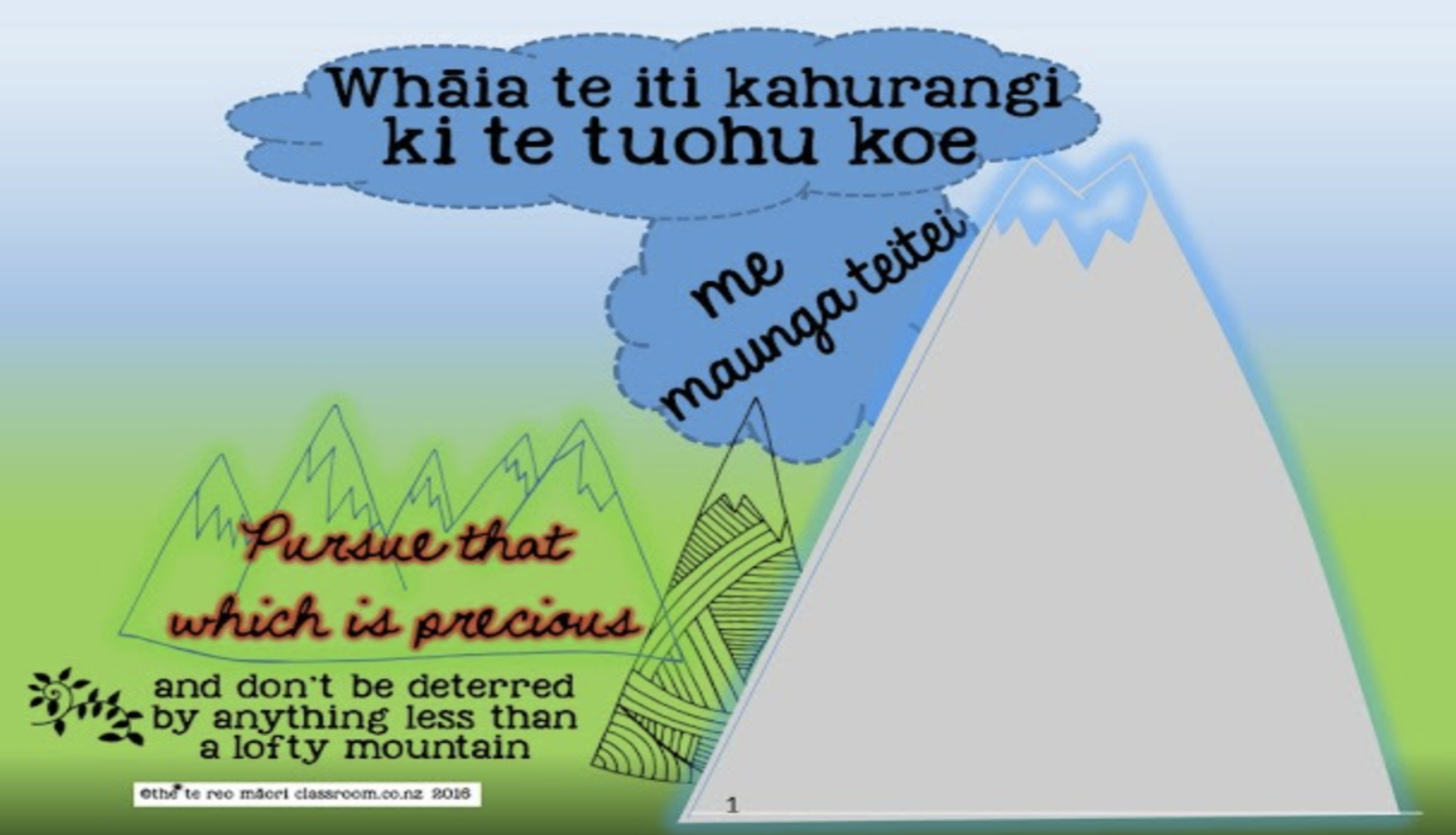
Students will understand the concept and importance through the context of Olympic Games and learn about how this unity can transcend difference to bring countries together on a common platform of sportsmanship and peace.
Origin of the Olympics
We're going on a time-traveling adventure to ancient Greece! Over 2,700 years ago, the very first Olympic Games were held in a place called Olympia. Unlike the Olympics today, only freeborn Greek men were allowed to compete in running, jumping, wrestling, and other athletic contests.
The ancient Greeks believed the Games honored Zeus, the king of the gods. They also saw it as a time for peace. During the Olympics, warring cities would put down their weapons and come together in a spirit of competition and unity.
Olympics is not just a sports event but also a celebration of peace and unity among nations.
The Parade of Nations symbolises global unity. The coming together of nations.
Kotahitanga.
Opening Ceremonies
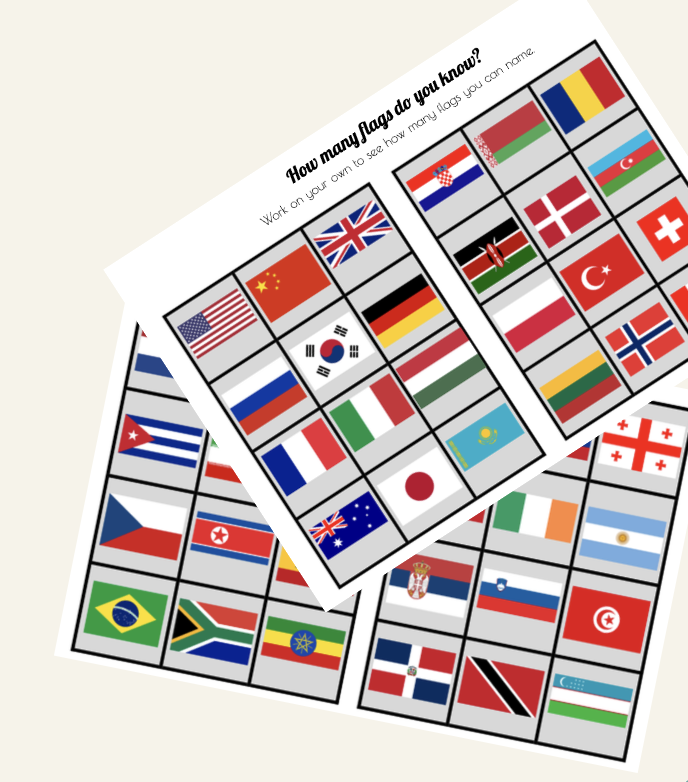
- Think on your own for 5 minutes to find as many flags that you know.
- Pair with someone at your table to find more flags. (Write these in a different colour).
- Share with the class your knowledge.
More than Just Sports
On your map colour the countries sending athletes to Paris 2024.
Colour by number of athletes attending
Use Wikipedia as a reference page.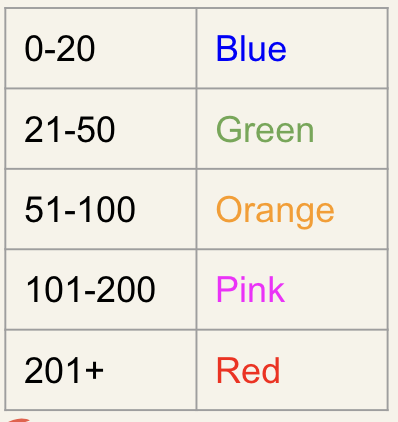

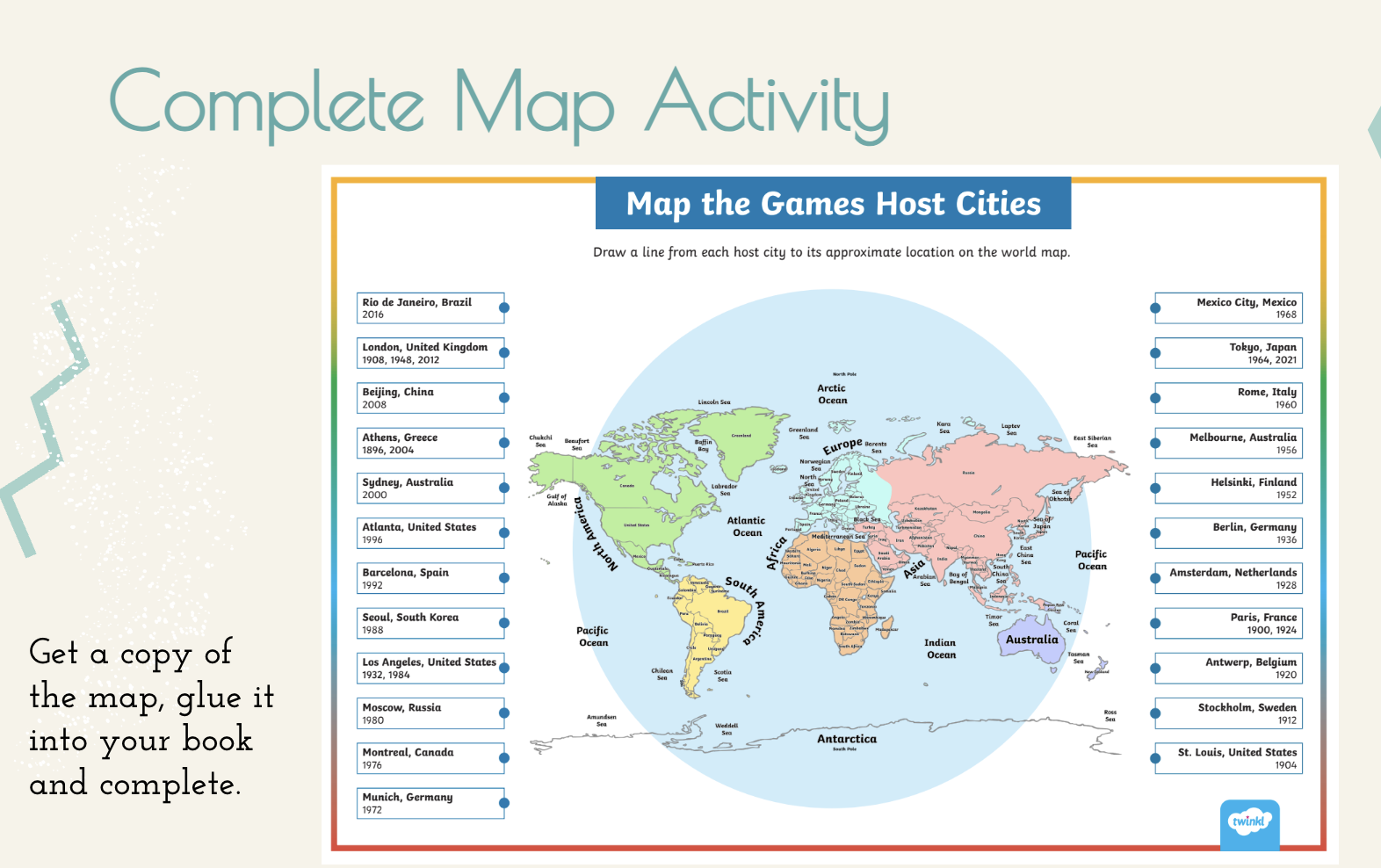
-
Enter text here...
EXPLORE / TŪHURA learning intentions:
- We are EXPLORING to analyse the connections between the Olympic Games and the concept of a united world.
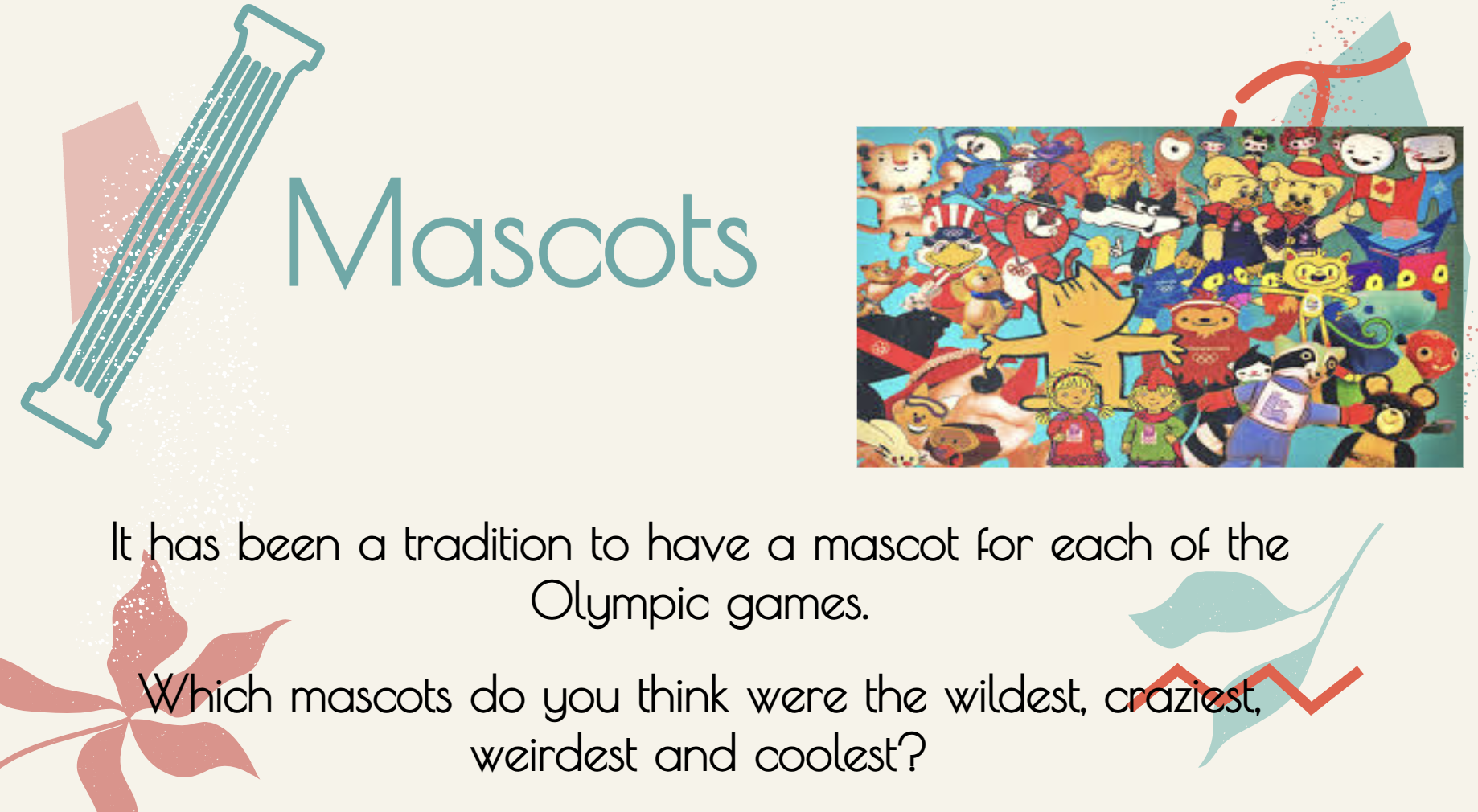
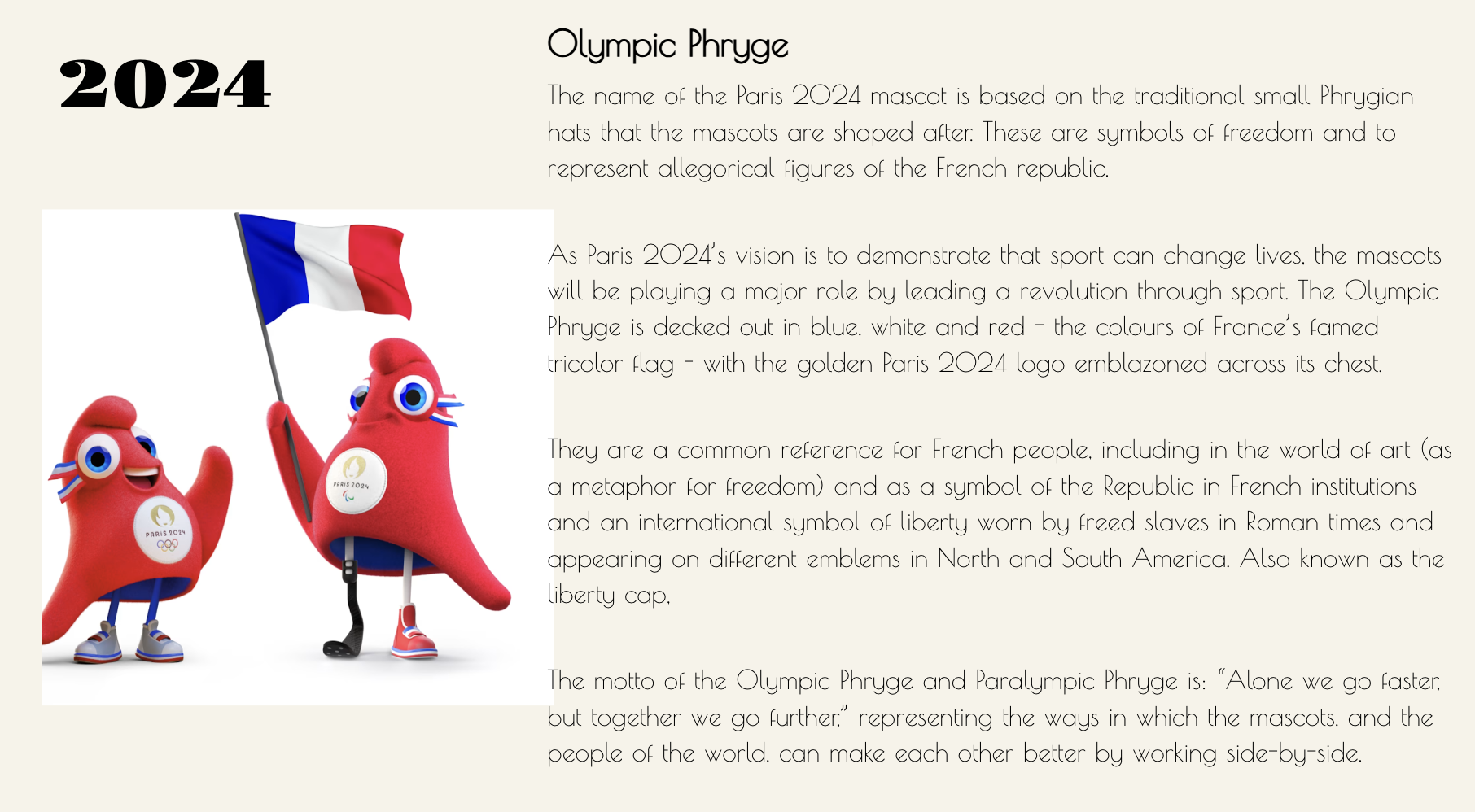
Assessment
You will research an Olympic mascot of your choice.
You will create a written report or presentation explaining the mascot's significance and how it promotes unity.
You will design your own Olympic mascot, representing a chosen country, and explain the cultural elements incorporated into the design.
A brief reflection on the process and learning should be included.
Use rubric for assessment.
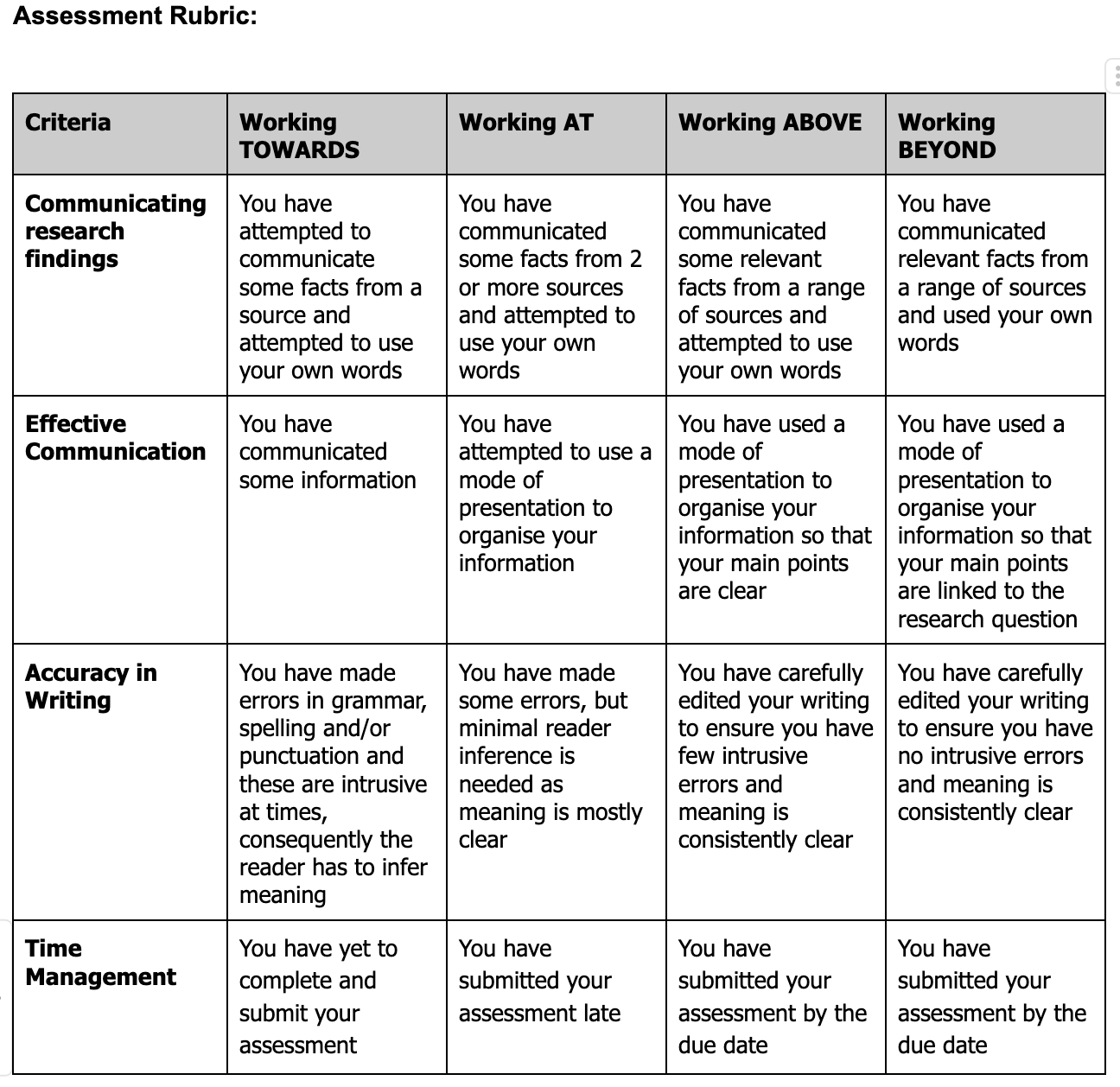
-
Enter text here...
EXPLORE / TŪHURA learning intentions:
- We are EXPLORING to analyse the connections between the Olympic Games and the concept of a united world.
Assessment
You will research an Olympic mascot of your choice.
You will create a written report or presentation explaining the mascot's significance and how it promotes unity.
You will design your own Olympic mascot, representing a chosen country, and explain the cultural elements incorporated into the design.
A brief reflection on the process and learning should be included.
Use rubric for assessment.
-
Enter text here...
REFLECT / WHAIWHAKAARO learning intentions:
- We are REFLECTING on the effectiveness of the Olympic Games in promoting a united world.
- We are REFLECTING on the the Olympic Games in promoting a united world and the introduction of mascots to promote unity.
Assessment
You will research an Olympic mascot of your choice.
You will create a written report or presentation explaining the mascot's significance and how it promotes unity.
You will design your own Olympic mascot, representing a chosen country, and explain the cultural elements incorporated into the design.
A brief reflection on the process and learning should be included.
Use rubric for assessment.
-
Enter text here...
REFLECT / WHAIWHAKAARO learning intentions:
- We are REFLECTING on the effectiveness of the Olympic Games in promoting a united world.
- We are REFLECTING on the the Olympic Games in promoting a united world and the introduction of mascots to promote unity.
Assessment
You will research an Olympic mascot of your choice.
You will create a written report or presentation explaining the mascot's significance and how it promotes unity.
You will design your own Olympic mascot, representing a chosen country, and explain the cultural elements incorporated into the design.
A brief reflection on the process and learning should be included.
Use rubric for assessment.
-
EXPLORE / TŪHURA learning intentions:
- We are EXPLORING to analyse the connections between the Olympic Games and the concept of a united world.
This week we are presenting our assessments with the focus on the past mascots and showing how we have created a new mascot for 2032 for a country of our choice.
Assessment
You will research an Olympic mascot of your choice.
You will create a written report or presentation explaining the mascot's significance and how it promotes unity.
You will design your own Olympic mascot, representing a chosen country, and explain the cultural elements incorporated into the design.
A brief reflection on the process and learning should be included.
Use rubric for assessment.
-
Enter text here...
EXPLORE / TŪHURA learning intentions:
- We are EXPLORING and interpreting maps to answer questions about location, distance, and direction.
- We are EXPLORING...
Enter text here...
Mapping Skills
https://www.worldatlas.com/aatlas/world.htm
Working in pairs, use the atlas to answer the questions on the worksheet. Use the index at the back of the atlas to help you.
Watch the video
https://www.youtubeeducation.com/watch?v=7lenHmz7pPk
Make sure you have completed the Brainpop activities.
Complete the Slide Show in Google Classroom using Google Earth -
Enter text here...
REFLECT / WHAIWHAKAARO learning intentions:
- We are REFLECTING on the effectiveness of the Olympic Games in promoting a united world.
- We are REFLECTING on the the Olympic Games in promoting a united world and the introduction of mascots to promote unity.
Enter text here...
While we listen to our presentations, you may continue with the Paris Summer Games Facgt Book in Google Classroom.
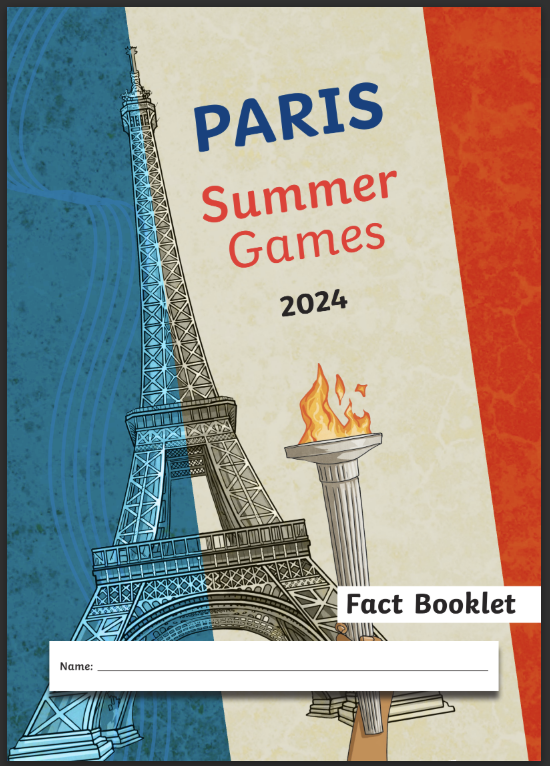
-
Enter text here...
EXPLORE / TŪHURA learning intentions:
- We are EXPLORING to identify different types of extreme weather events, including hurricanes, tornadoes, floods, droughts, and heatwaves.
- We are EXPLORING to understand the impact of these events on people, property, and the environment.
Enter text here...
Extreme Weather
1. Watch the video - Hurricanes, Tornadoes, Typhoons, Cyclones & Monsoons - What's the difference?
2. Complete the Edpuzzle - Cyclones, Hurricanes, Typhoons CC#12 online.
3. Complete Tropical Cyclones Digital Activities on Google Slides
Draw plan on paper in classroom and add to packet of work on bench at the front of the classroom.
4. Read Hurricane Information sheet
Complete the booklet in work packet on bench.
5. Complete a mild, medium, hot and extra hot activity from the Takeaway Homework Hurricanes activity.
-
Enter text here...
FOCUS / ARONGA learning intentions:
- We are FOCUSING to understand the concept of cultural diversity and how it is celebrated around the world.
- We are FOCUSING to appreciate the significance of different cultural celebrations.
Enter text here...
Enter text here...
EXPLORE / TŪHURA learning intentions:
- We are EXPLORING to identify different types of extreme weather events, including hurricanes, tornadoes, floods, droughts, and heatwaves.
- We are EXPLORING to understand the impact of these events on people, property, and the environment.
Extreme Weather
1. Watch the video - Hurricanes, Tornadoes, Typhoons, Cyclones & Monsoons - What's the difference?
2. Complete the Edpuzzle - Cyclones, Hurricanes, Typhoons CC#12 online.
3. Complete Tropical Cyclones Digital Activities on Google Slides
Draw plan on paper in classroom and add to packet of work on bench at the front of the classroom.
4. Read Hurricane Information sheet
Complete the booklet in work packet on bench.
5. Complete a mild, medium, hot and extra hot activity from the Takeaway Homework Hurricanes activity.
-
Enter text here...
FOCUS / ARONGA learning intentions:
- We are FOCUSING to understand the concept of cultural diversity and how it is celebrated around the world.
- We are FOCUSING to appreciate the significance of different cultural celebrations.
NOBODY LAUGHED
Learning Focus: Appreciating diversity
Think about
How would you feel if someone found out your big secret?
Do you think it’s possible that everyone has something they don’t want others to find out about?
What would happen if everyone just shared their important things (and ideas) with each other?
CLICK HERE TO READ OR LISTEN TO THE BOOK:
Read or listen to the book and answer these questions:
1. WHAT HAPPENED IN THE STORY?
2. HOW DID AIDEN FEEL WHEN MR CHALMERS STARTED TO OPEN THE SCHOOL BAGS?
3. HOW DID THE KIDS REACT TO THE SPECIAL THINGS THAT CAME OUT OF EACH SCHOOL BAG?
4. WHAT DO YOU THINK WAS IN AIDEN’S SCHOOL BAG? (LET YOUR IMAGINATION GO WILD!)
My Thought Coaches
Here’s a couple of ‘thought coaches’about believing in yourself and accepting the things that are different about others. Read them through and talk to Mum and Dad(or another adult) about which ones work best for you..
"It’s okay to be different from other people."
"I can accept other people’s differences."
"Our differences can make life lots of fun."
-
Enter text here...
EXPLORE / TŪHURA learning intentions:
- We are EXPLORING to research different cultural celebrations and their traditions.
- We are EXPLORING to analyze the similarities and differences between celebrations.
- We are EXPLORING to understand the impact of these events on people, property, and the environment.
Create an A3 poster using CANVA to show your understanding of Diversity.
Must have:- definition
- what you know already
- images
- quotes
- people
-
EXPLORE / TŪHURA learning intentions:
- We are EXPLORING celebrations and how different cultures celebrate.
Kia ora 7C1
This week, we will be looking at how diversity is recognised in New Zealand and how we are all different and living in our world. We will discuss celebrations and how we all celebrate around the summer holidays.
We will be reading and completing activities around the books we read.
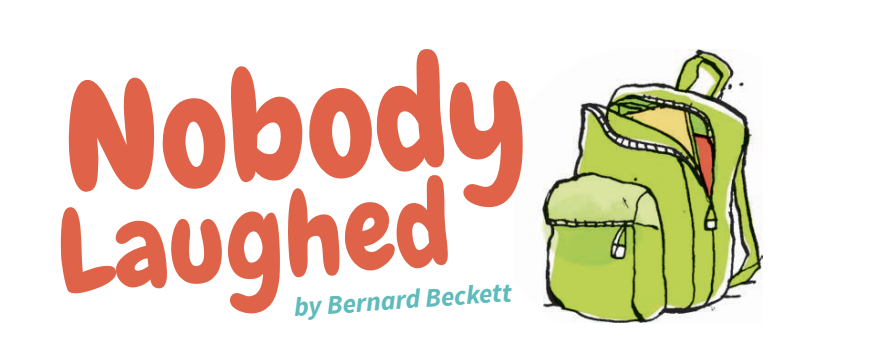
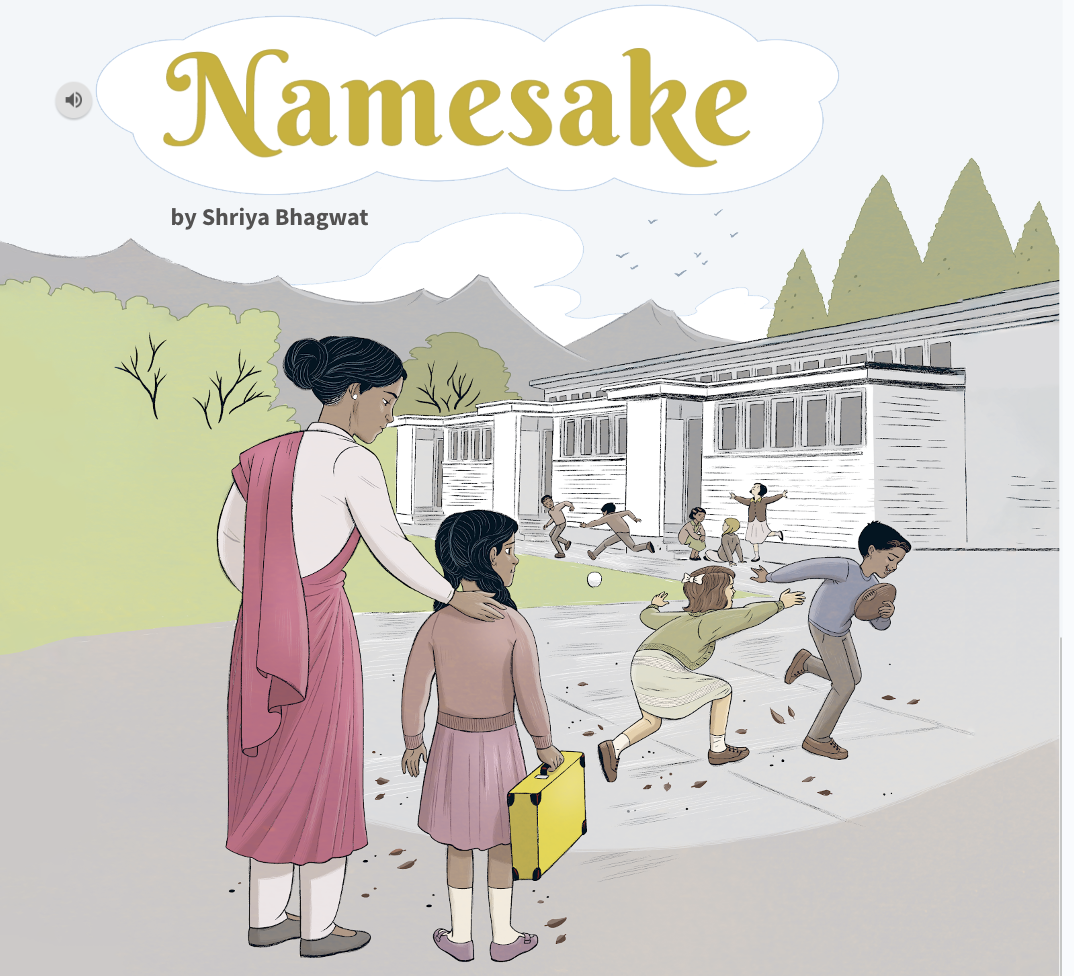
-
Enter text here...
EXPLORE / TŪHURA learning intentions:
- We are EXPLORING celebrations and how different cultures celebrate at Christmas time in New Zealand.
Kia ora 7C1,
Work to begin today. This is your work for the first 2 sessions this week.
All your work is in Google Classroom- Weekly Quiz
- Christmas Around The World.
- Weekly Quiz
- Watch the video from Twinkl Kids TV.
- Use the powerpoint to complete the worksheet.
1. Complete a Notice and Wonder activity for the image.
2. Read and take notes.
3. For each term write a sentence and find or draw an image to represent it.
4. Reflect on your learning by identifying three new things you learned, two connections to prior knowledge, and one area you want to explore further.
5. Answer each multiple choice question and explain why you picked your answer.
6. Respond to short answer questions using complete sentences.
7. Write a response to an open ended question using PEEL paragraphs.
If you complete ALL the activities and have approval of your teacher, move onto Holidays Around the World worksheet. -
Kia ora 7C1,
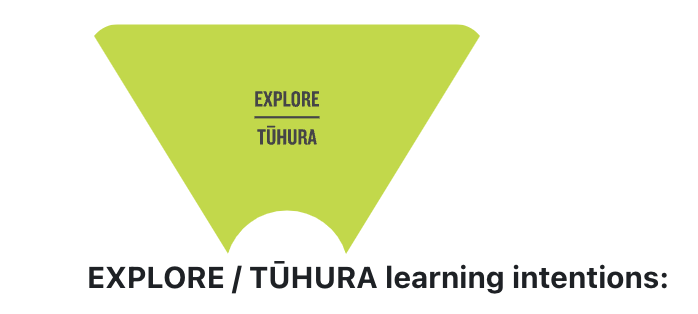
Kia ora 7C1,
Welcome to the second to last week of the year.
You are planning a christmas party for our class - remember the Matariki Party challenge, this is similar. Get a booklet from the packet with your teacher and return it at the end of each session.
Session 1
Weekly Quiz - mark with your teacher
Begin the Christmas Party Challenge.- Brainstorm your meal items. Think about what you have for christmas with your whanau and base your party around your traditions and foods from home.
- Brainstorm possibilities for each of the categories - starters, mains and dessert. You could add family favourites, ideas from recipe books or websites and popular ‘crowd-pleasers’. Aim for at least four ideas for each meal category.
- You now need to decide on your final meal items from your brainstormed list. You can choose to conduct a vote or use a ranking system.
- Your budget is $200.
- Make a list of all the ingredients required to make your starter, main meal and dessert items. Make sure you think through each
item carefully and check any relevant recipes. - Think about any additional items you may need in order to prepare and serve your food.
Do you need napkins, plates or spoons? - What about cooking oil or sauce?
List these items also, as they will contribute towards your overall cost. - Use the budgeting spreadsheet to work out how much money your have spent.
Display Menu - Create a menu that displays what you will be serving at your Christmas Party.
Music Playlist - Create a music playlist that will set the mood for your celebration!
